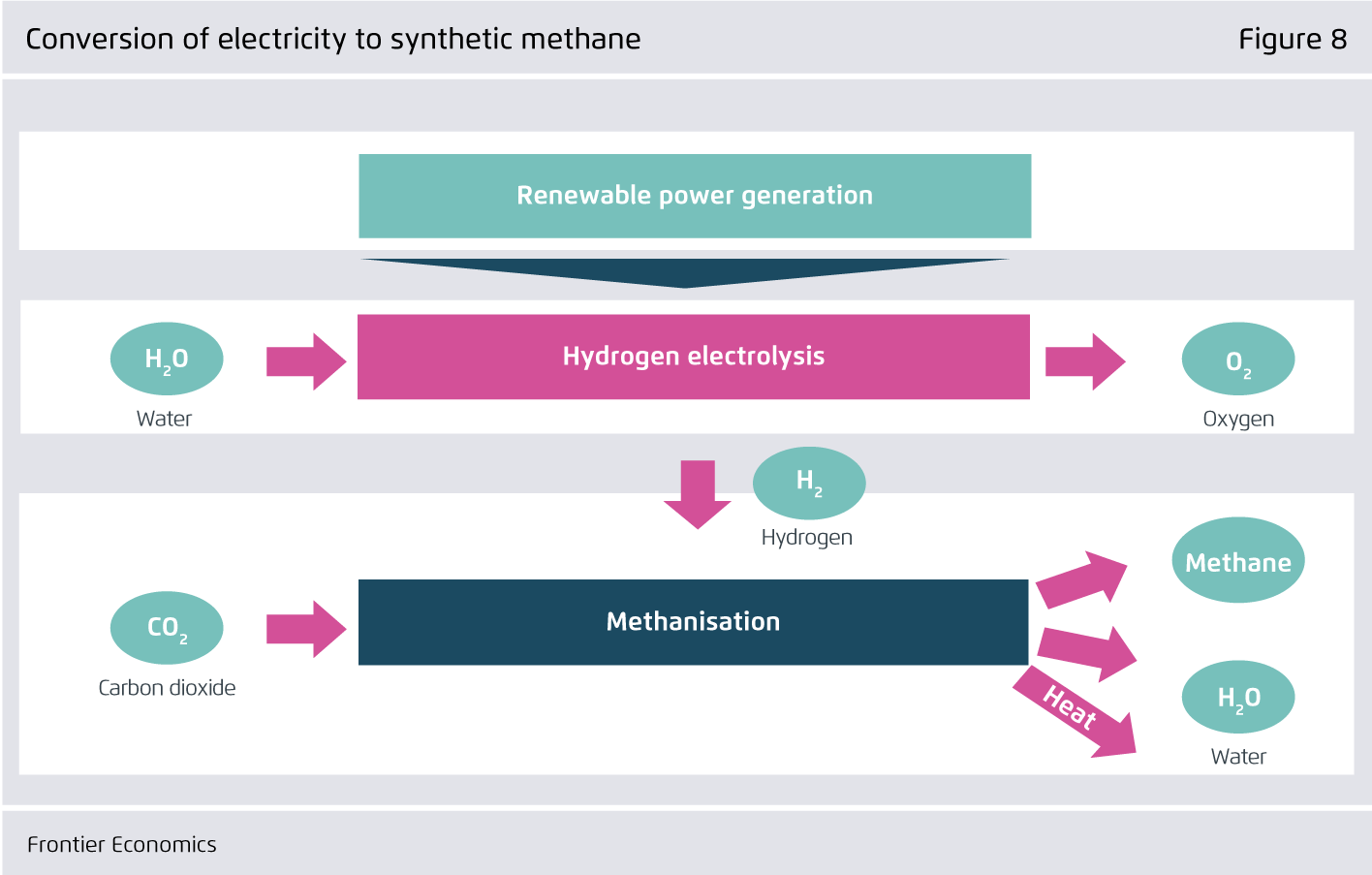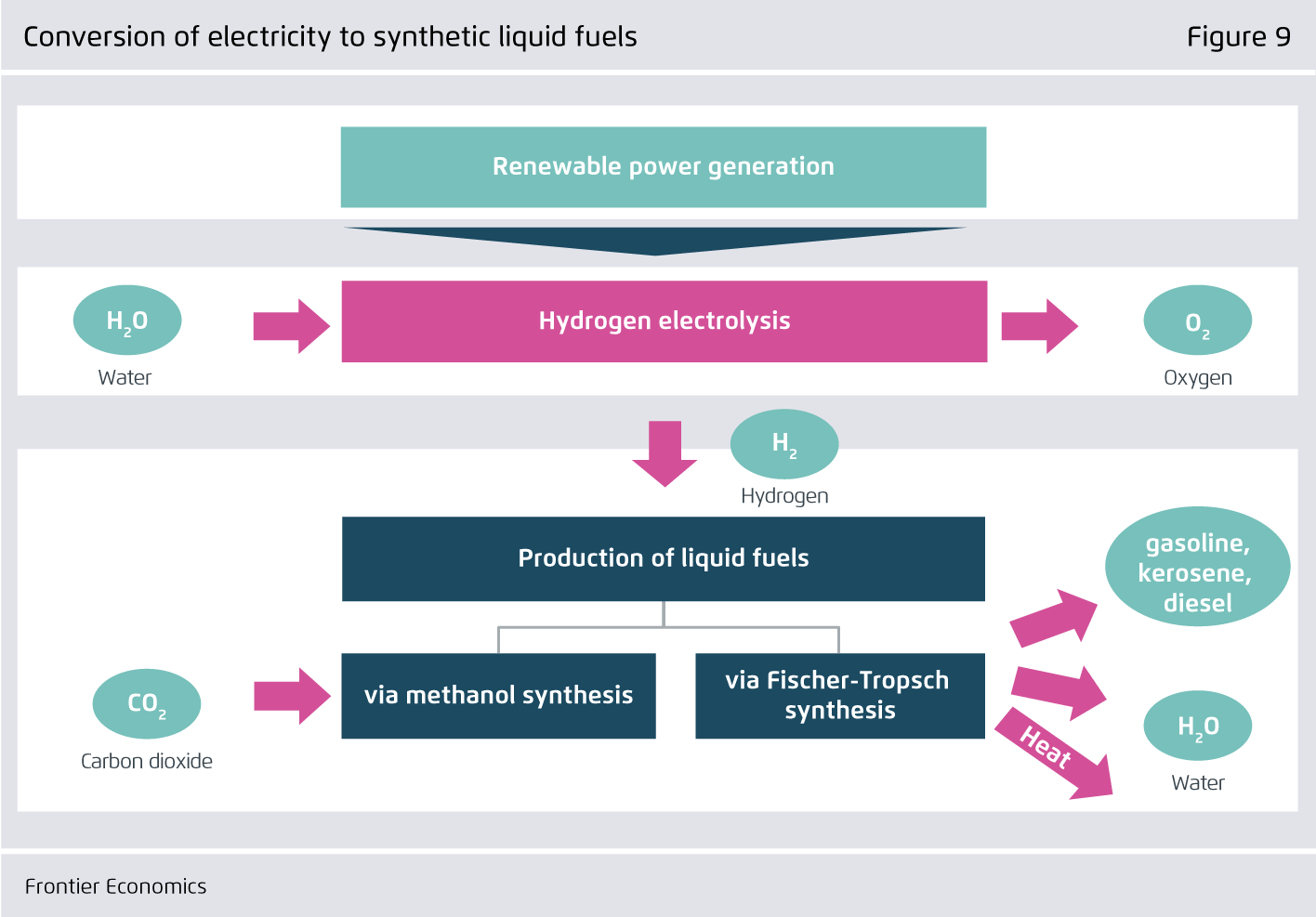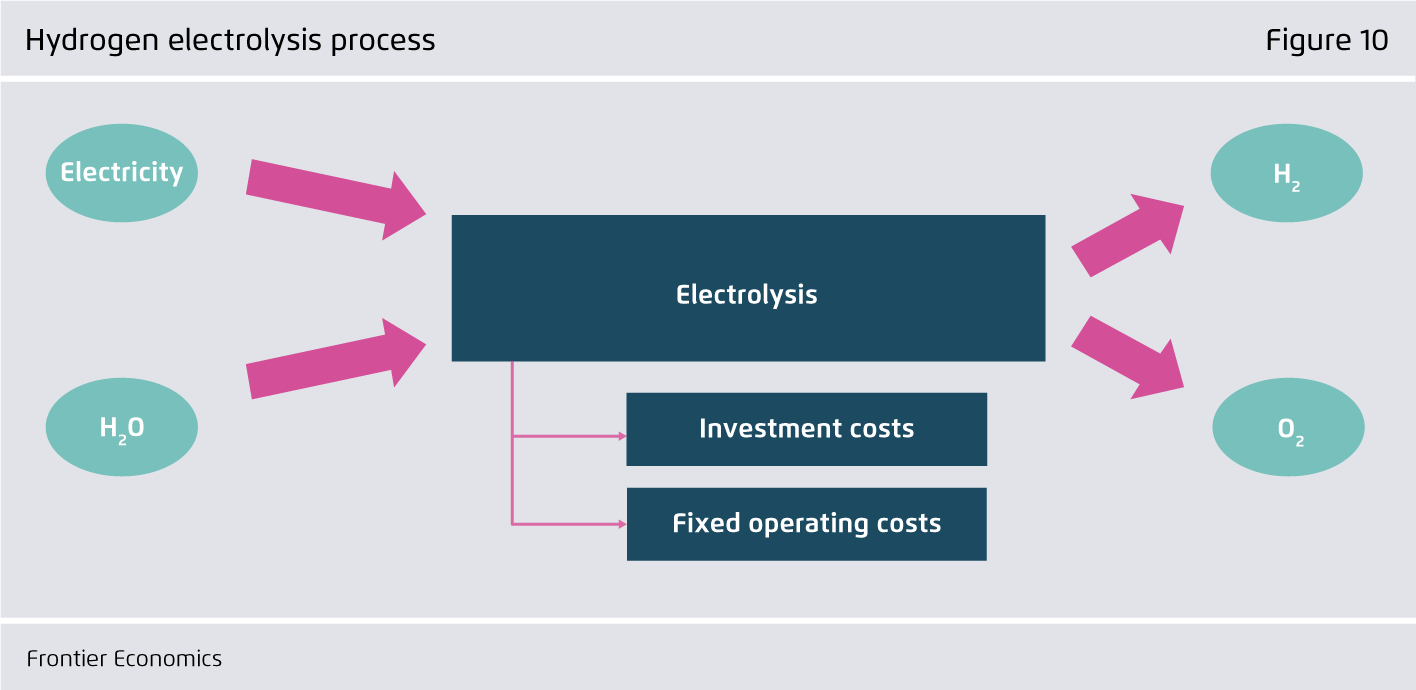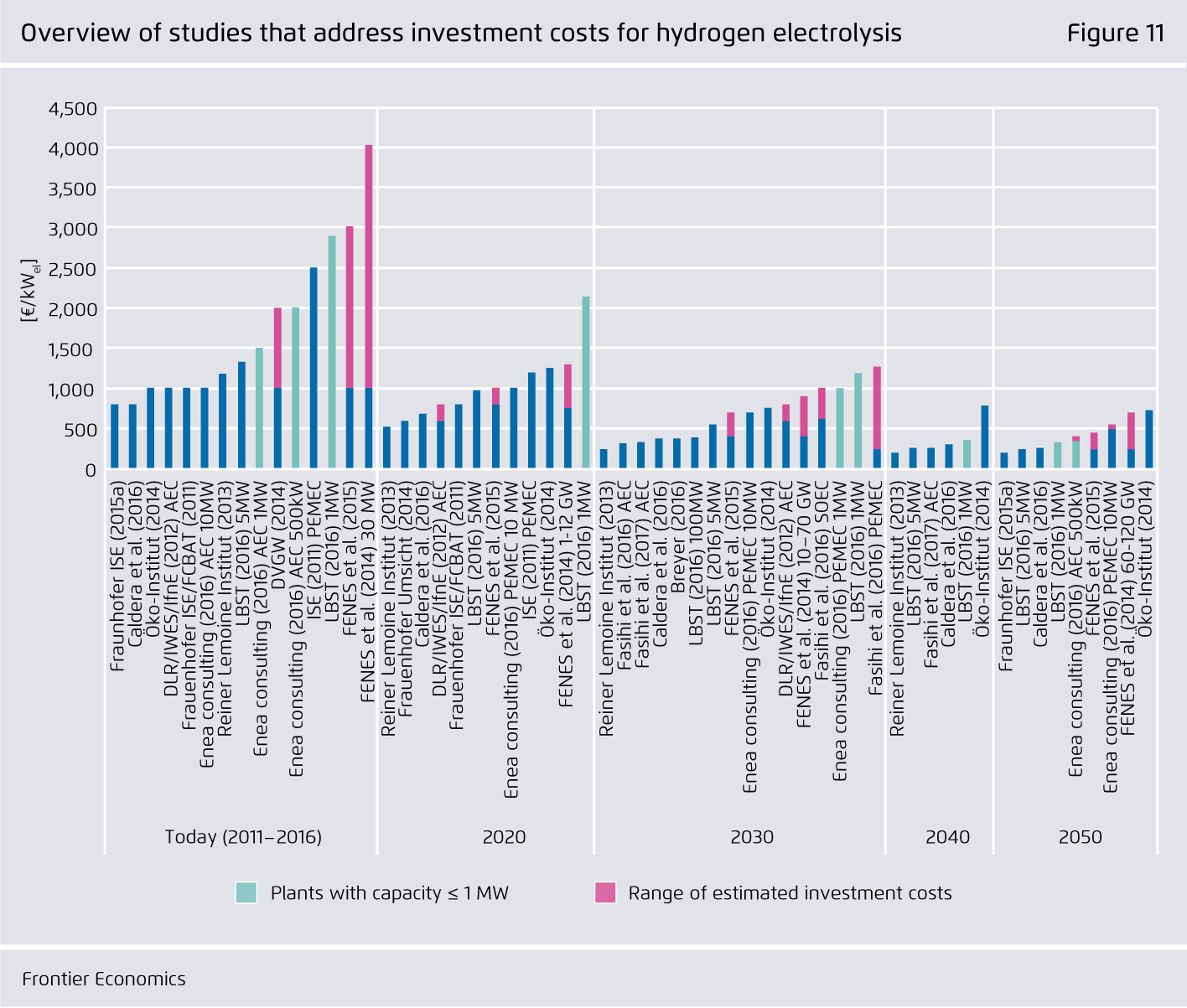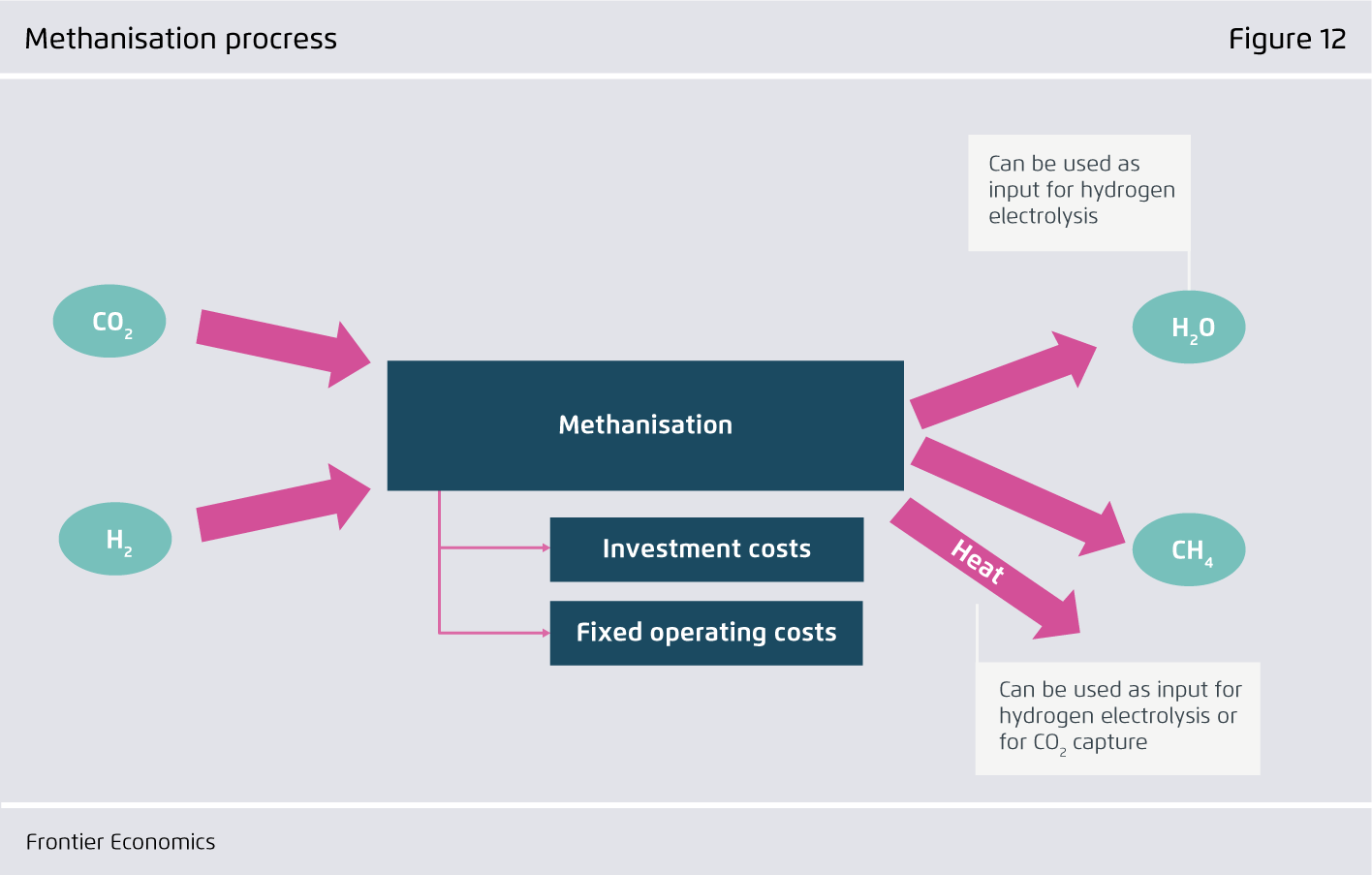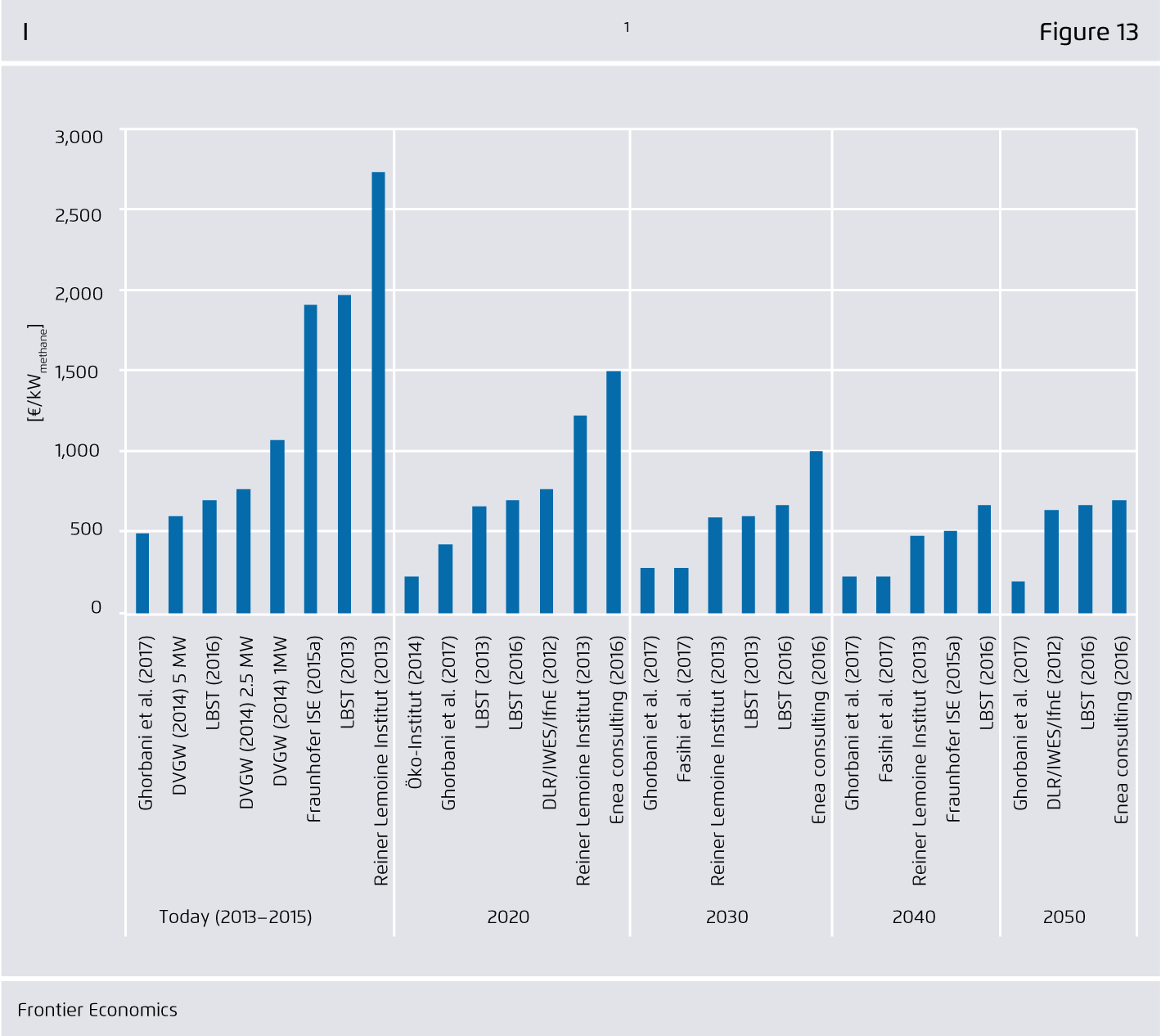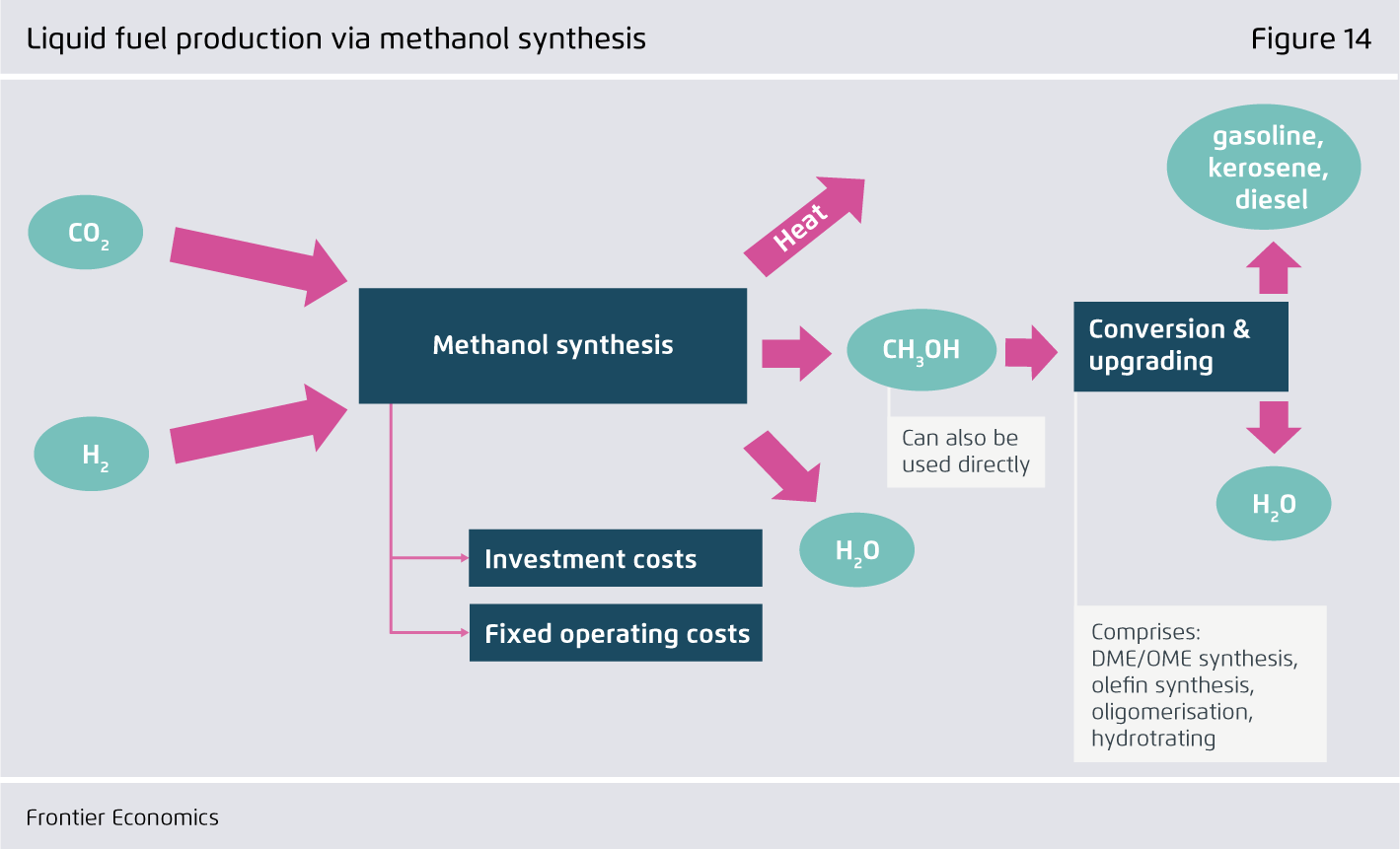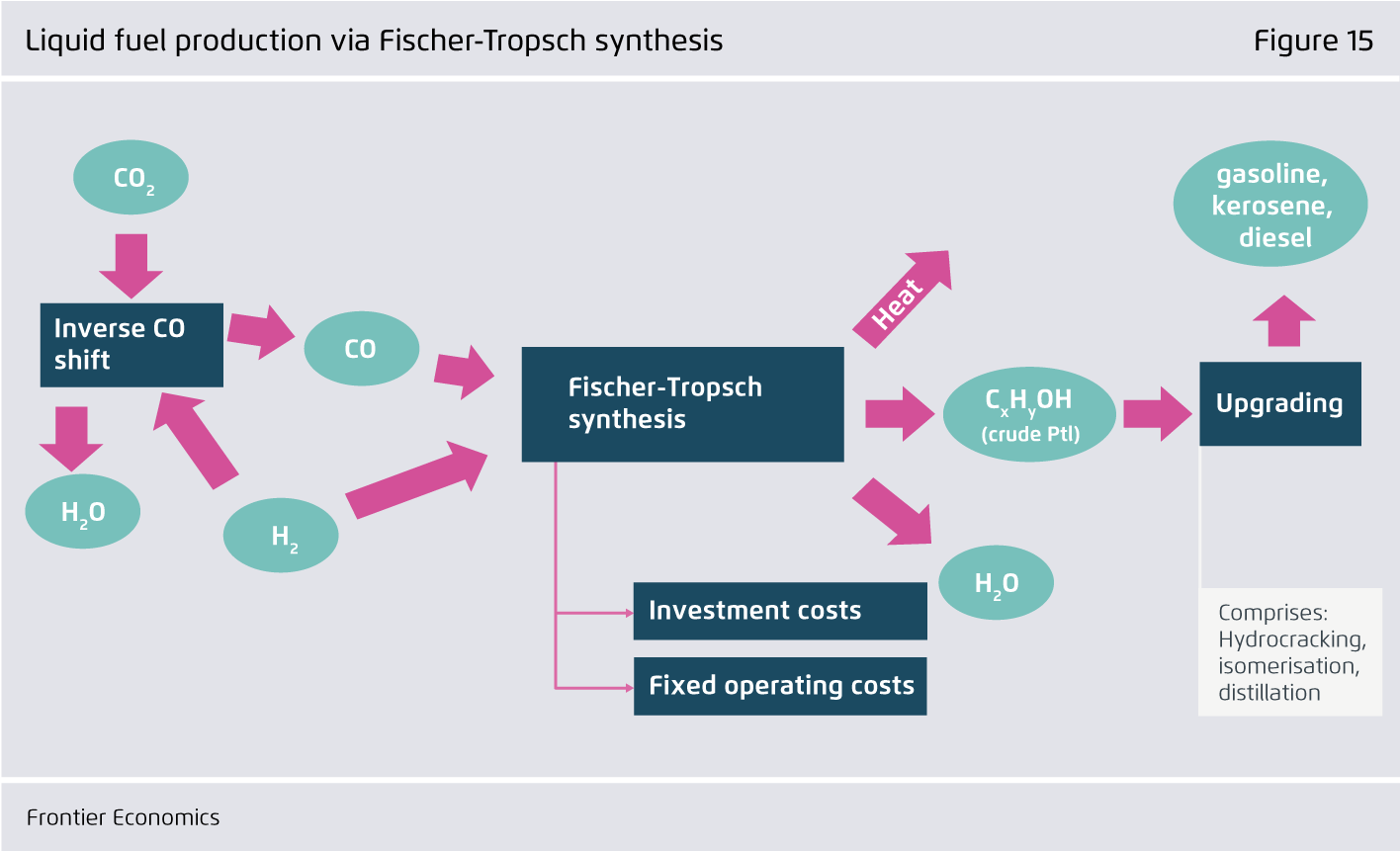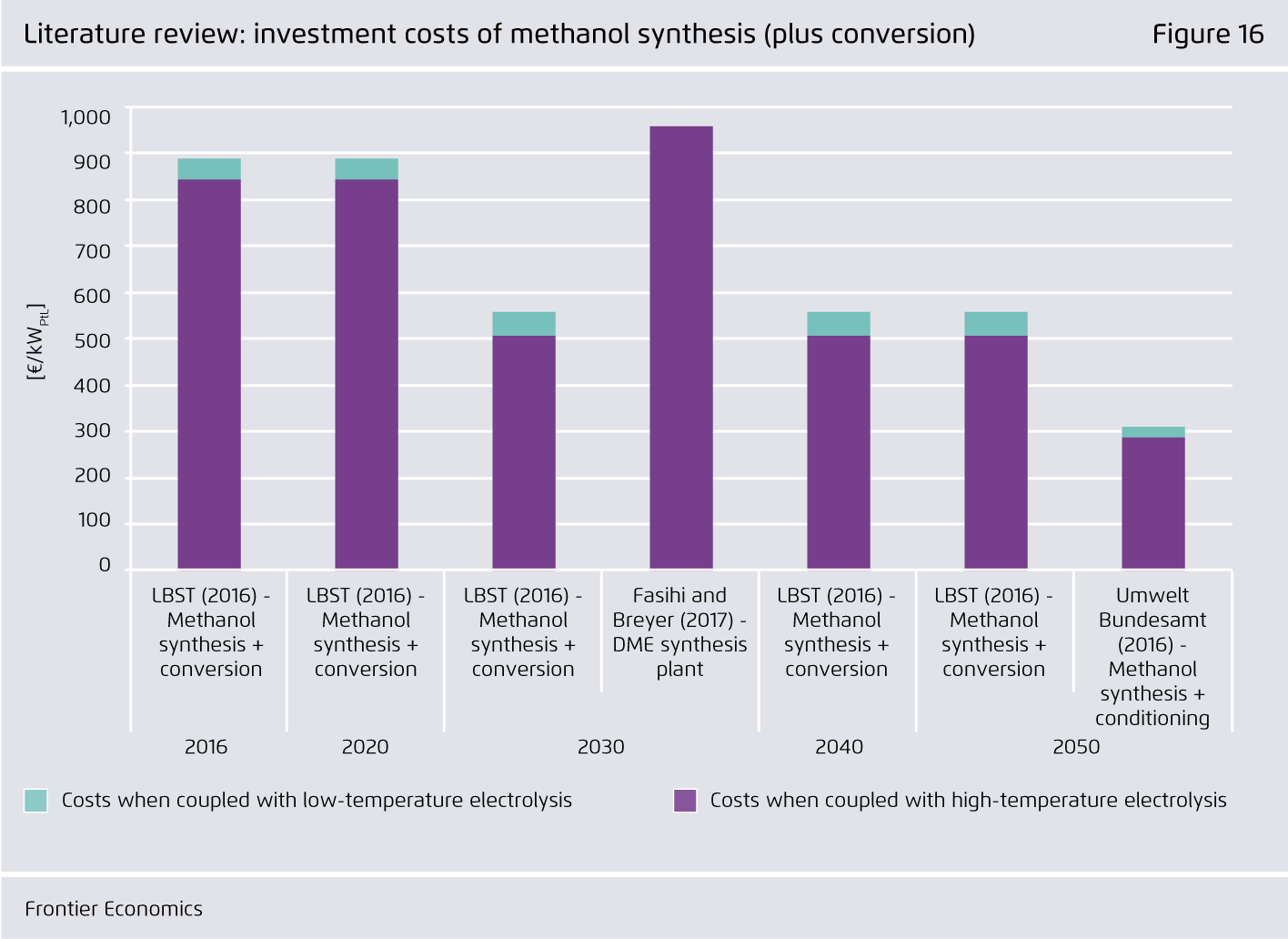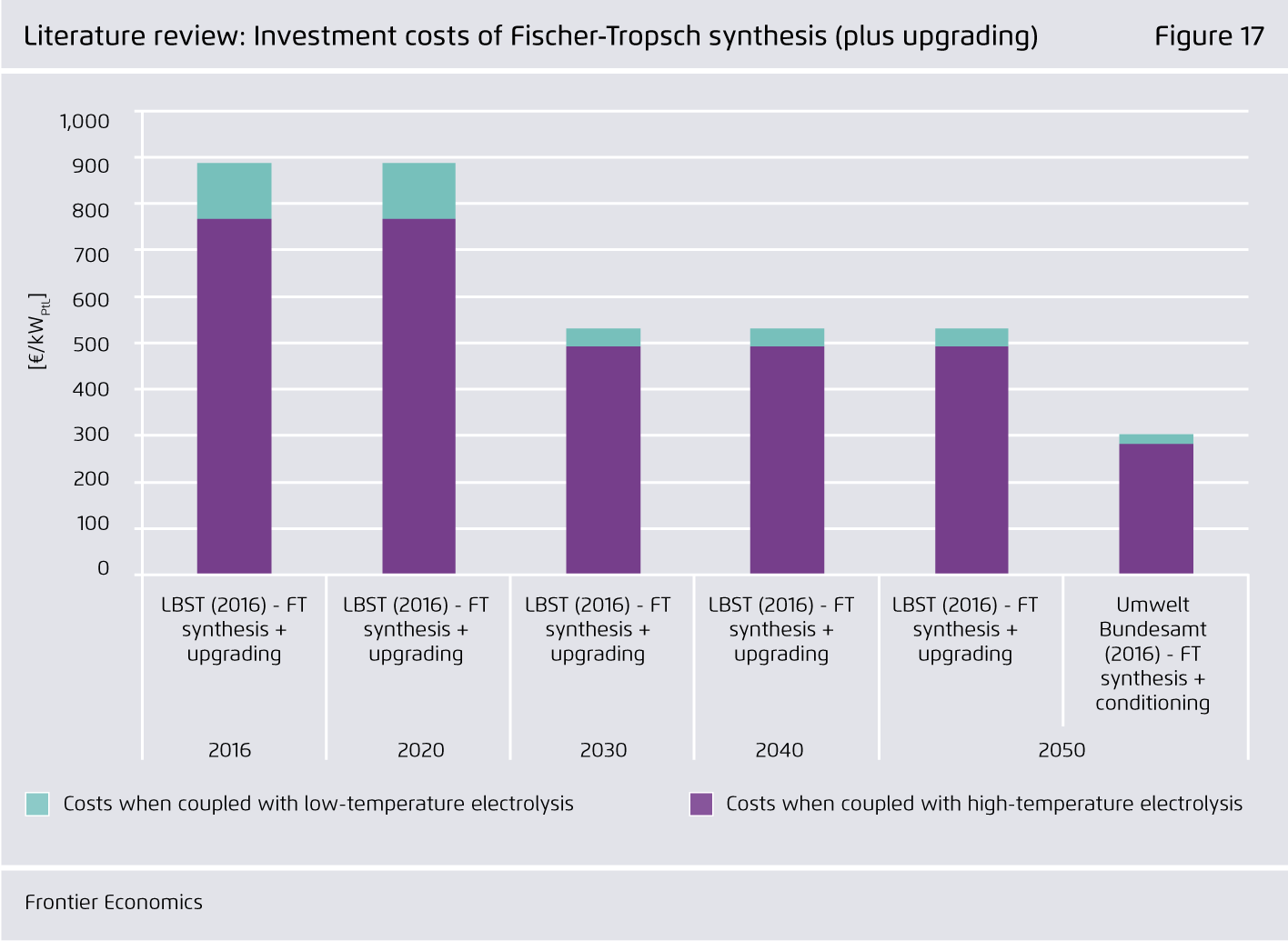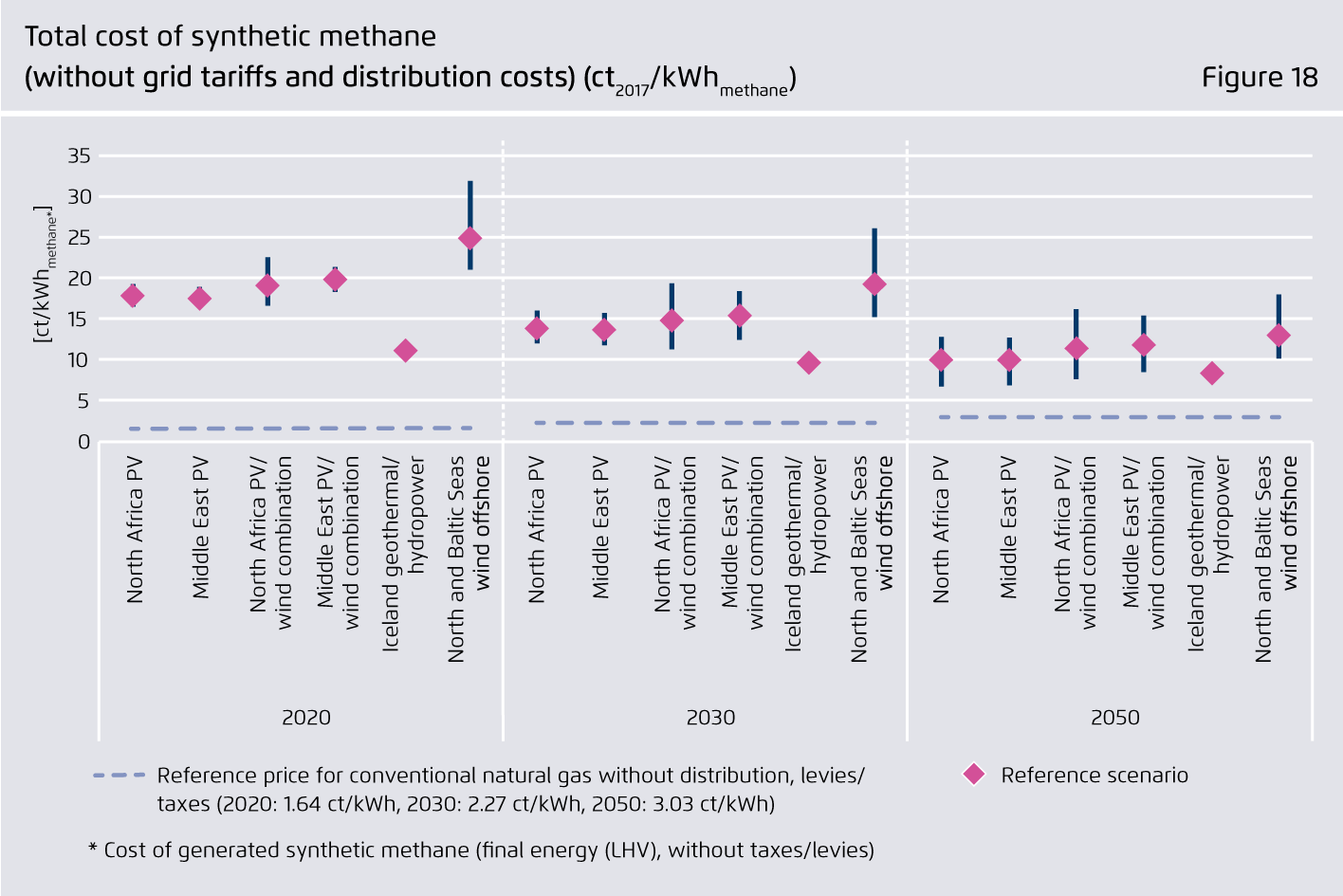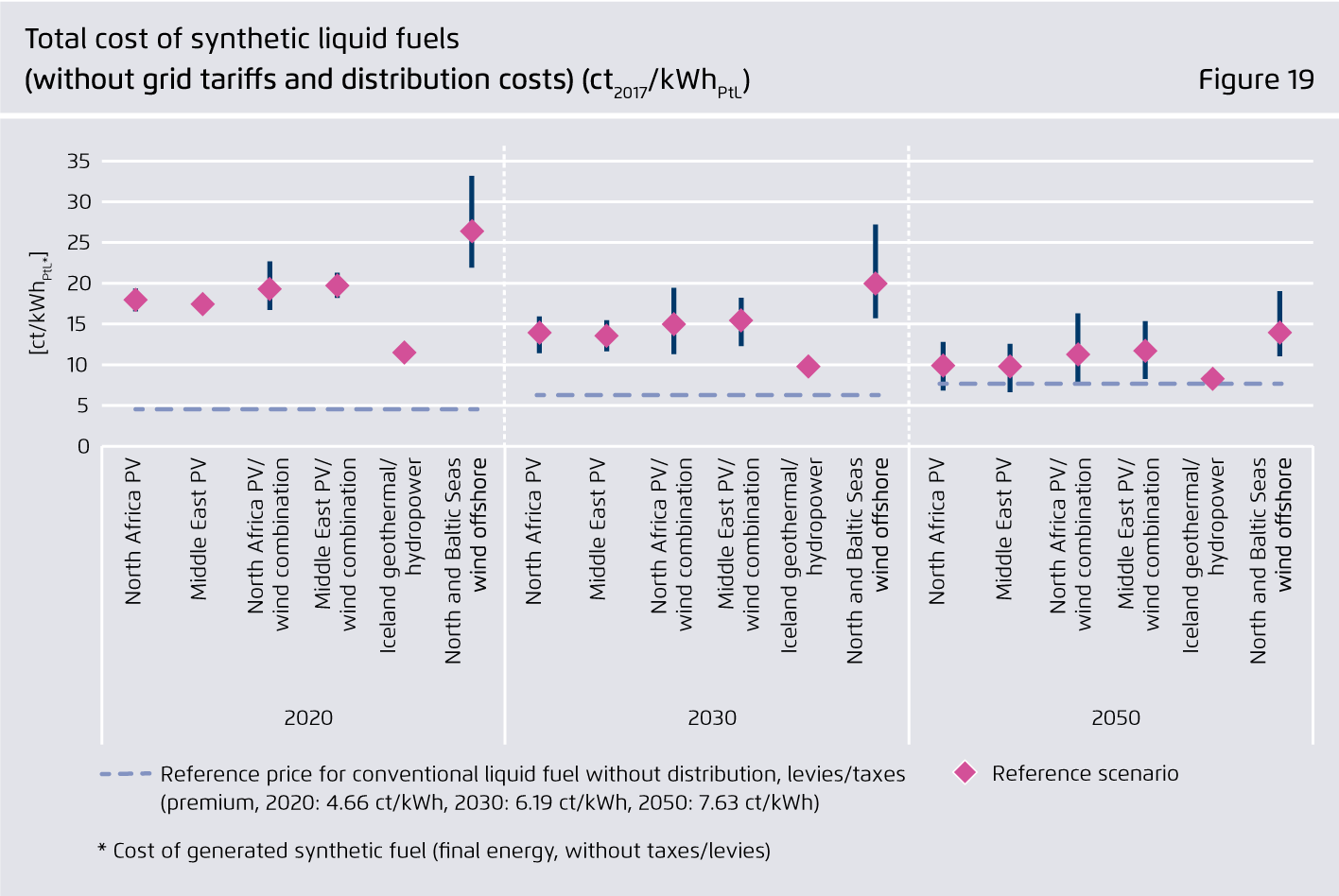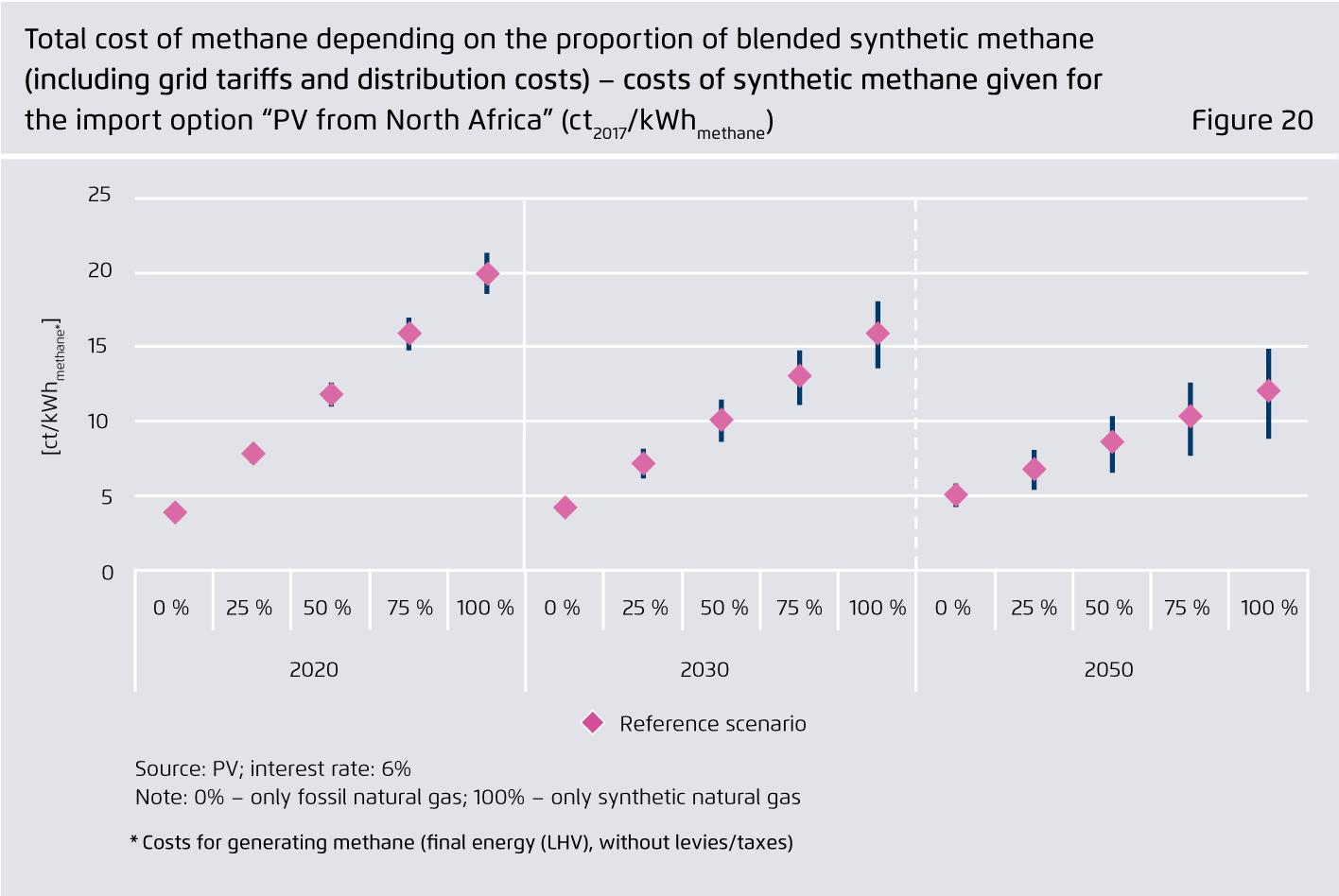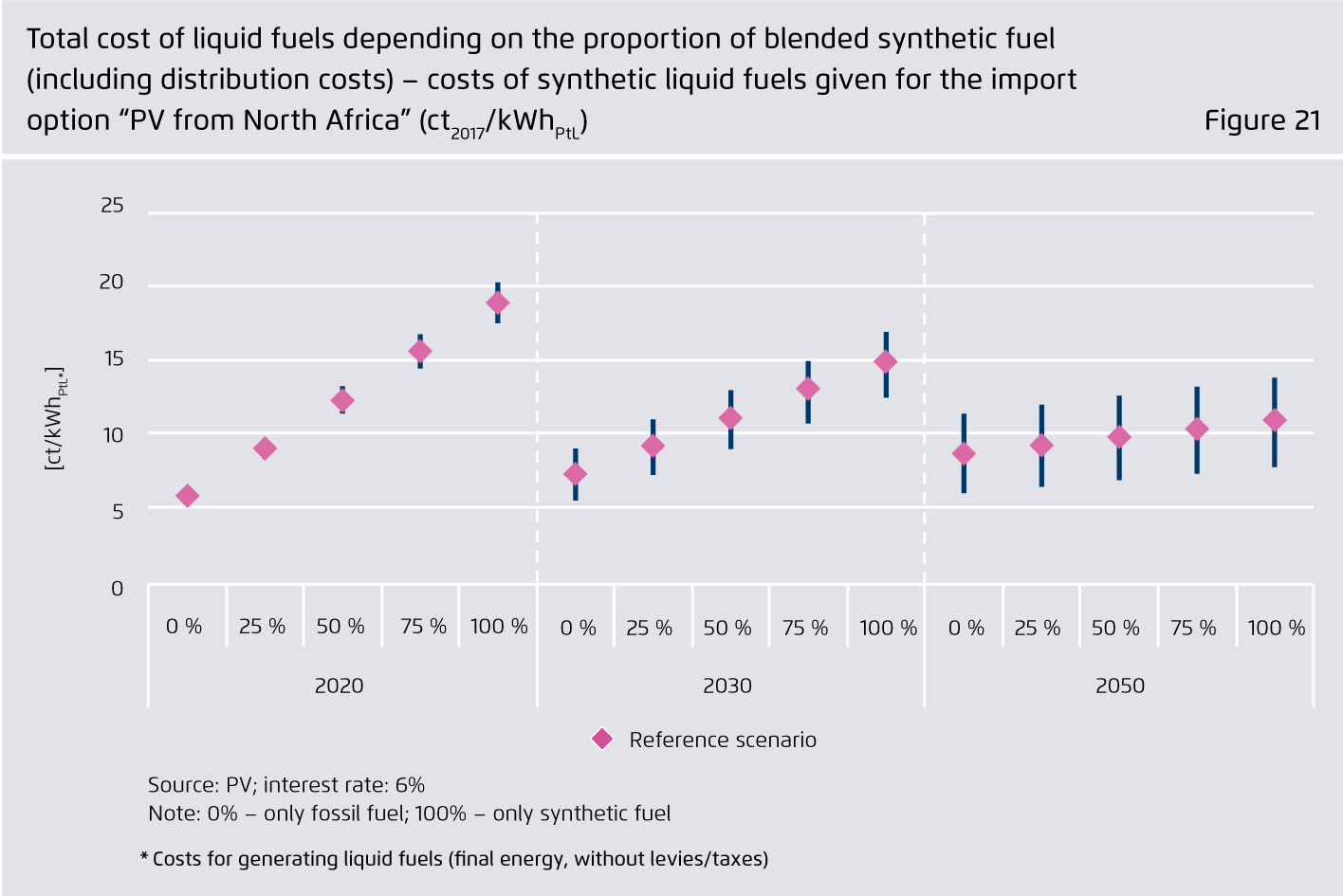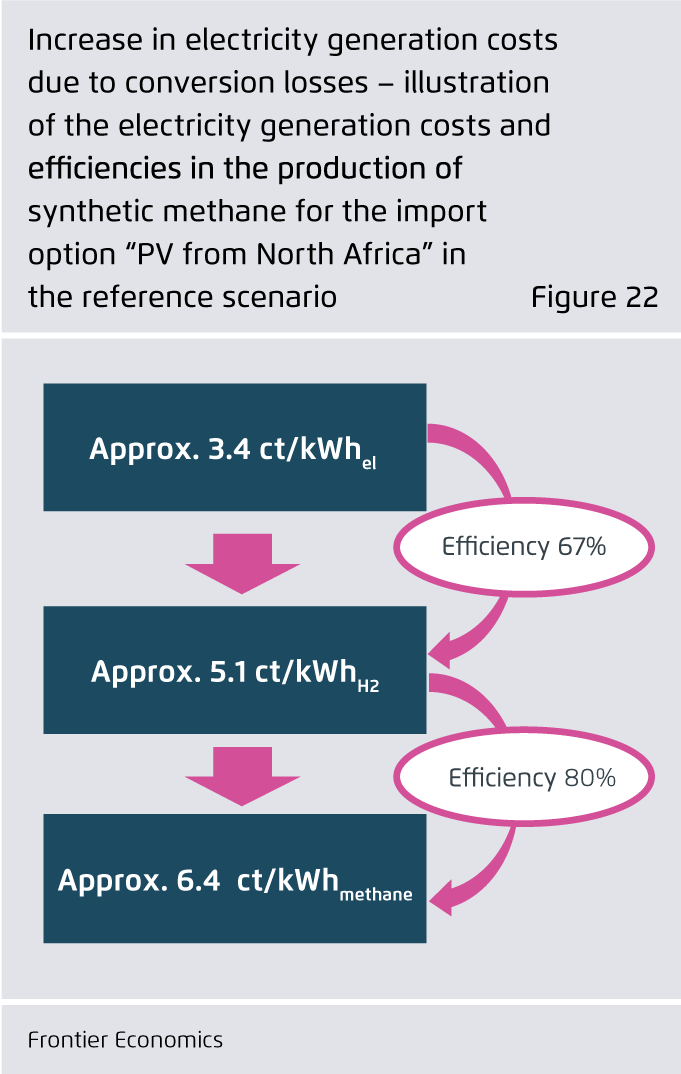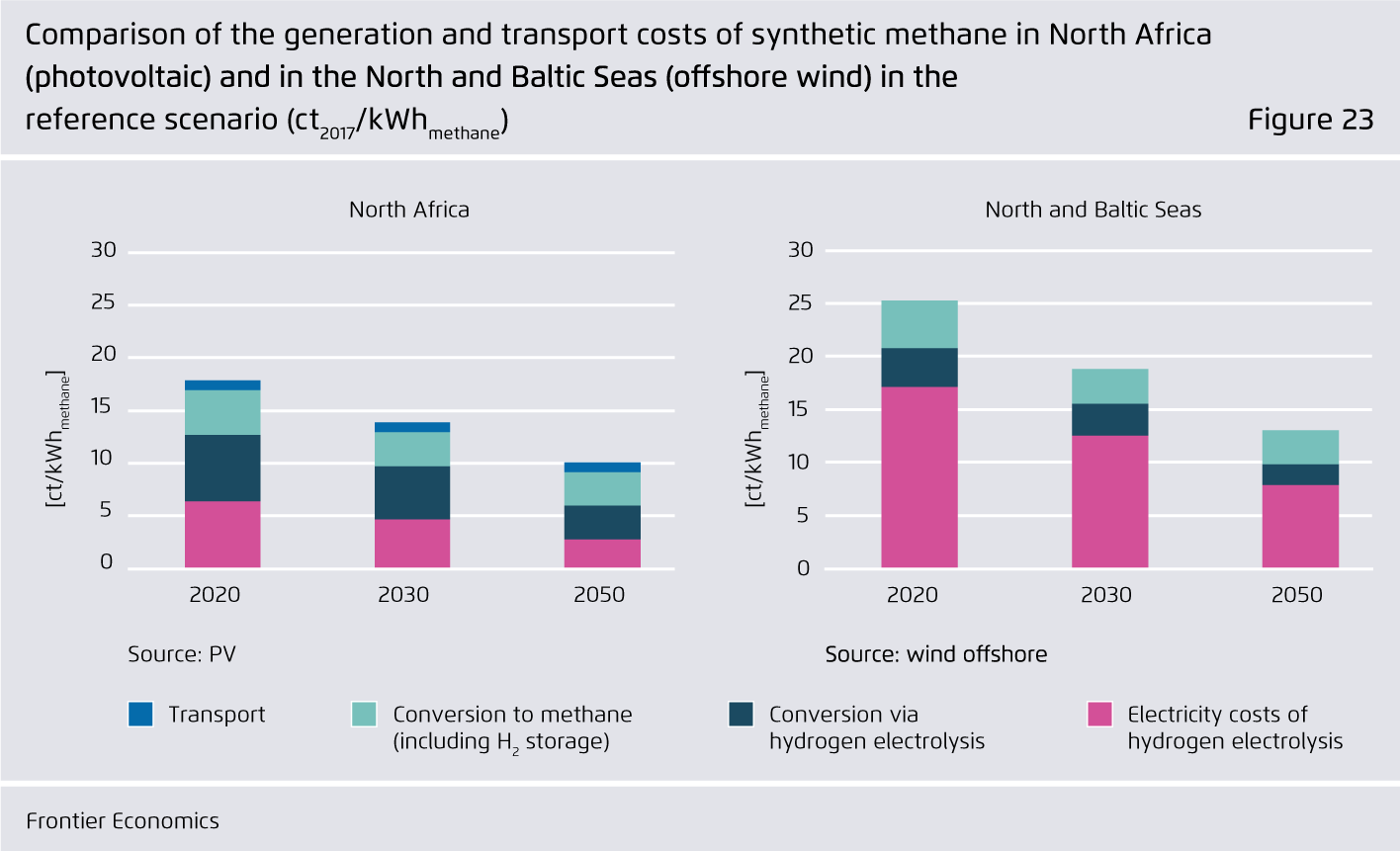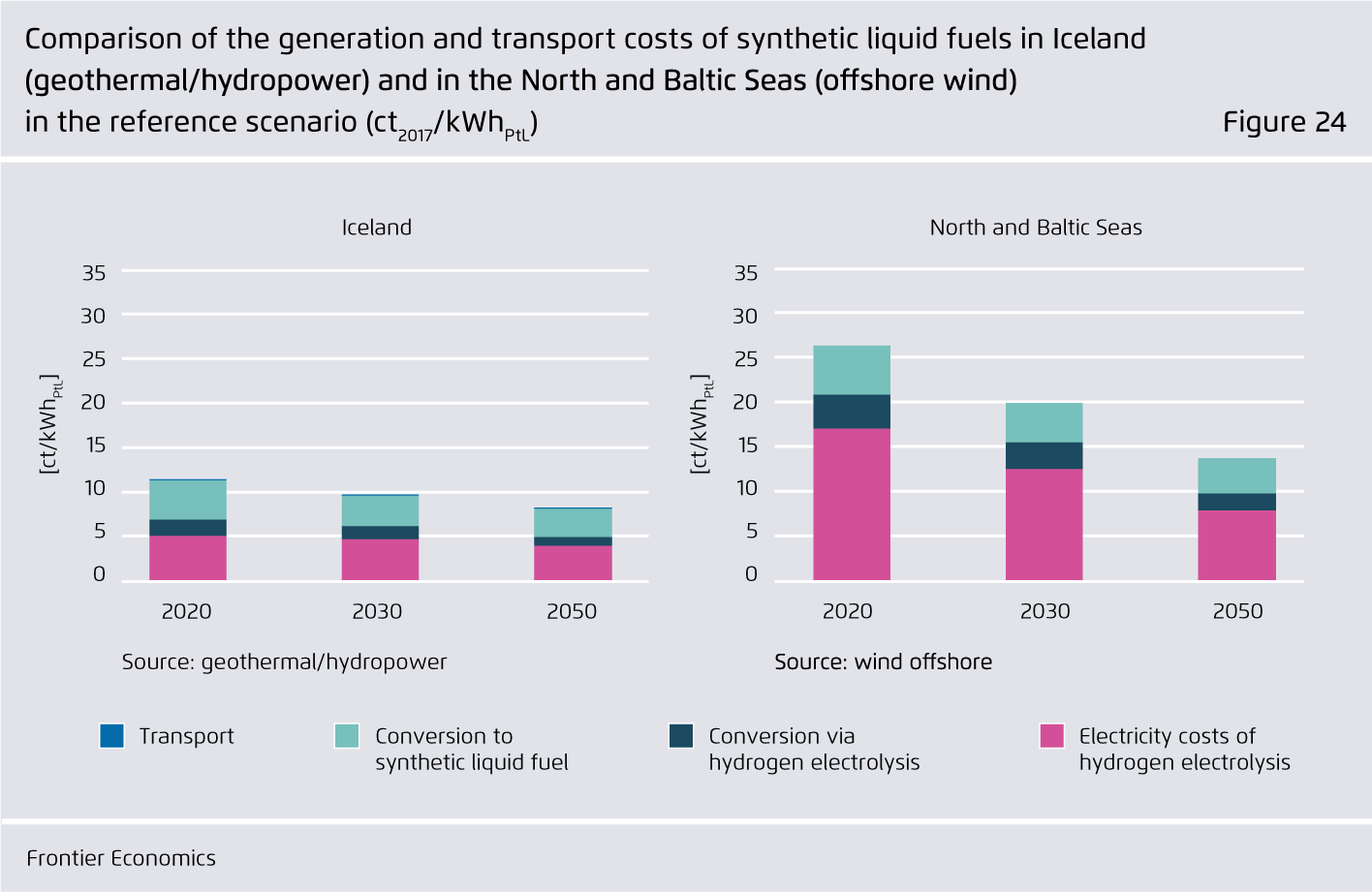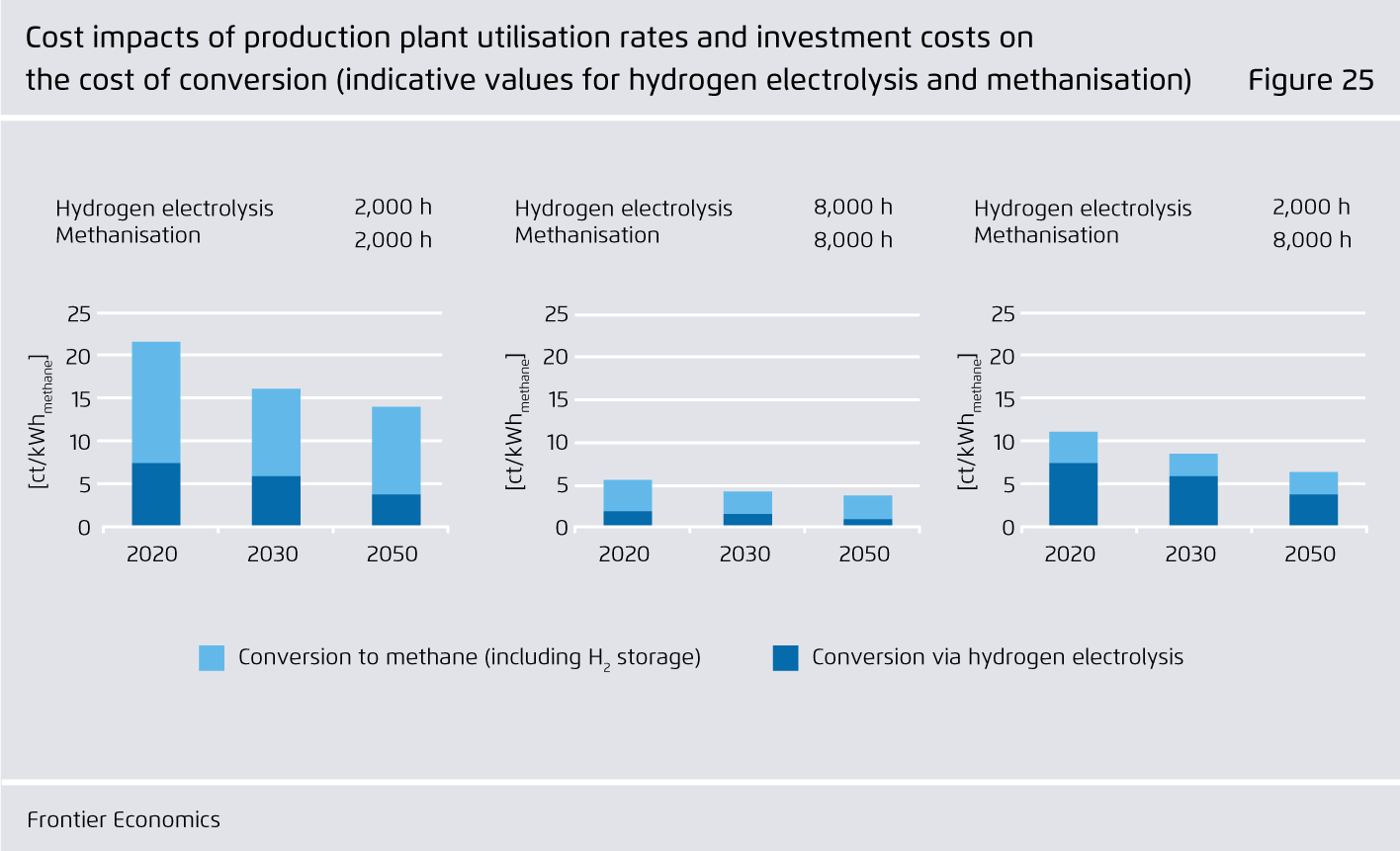-
Synthetic fuels will play an important role in decarbonising the chemicals sector, the industrial sector, and parts of the transport sector.
Synthetic fuel production technologies can be used to manufacture chemical precursors, produce high-temperature process heat, as well as to power air, sea and possibly road transport. Because synthetic fuels are more expensive than the direct use of electricity, their eventual importance in other sectors is still uncertain.
-
To be economically efficient, power-to-gas and power-to-liquid facilities require inexpensive renewable electricity and high full load hours. Excess renewable power will not be enough to cover the power demands of synthetic fuel production.
Instead, renewable power plants must be built explicity for the purpose of producing synthetic fuels, either in Germany (i.e. as offshore wind) or in North Africa and the Middle East (i.e. as onshore wind and/or PV). The development of synthetic fuel plants in oil- and gas-exporting countries would provide those nations with a post-fossil business model.
-
In the beginning, synthetic methane and oil will cost between 20 and 30 cents per kilowatt hour in Europe. Costs can fall to 10 cents per kilowatt hour by 2050 if global Power-to-Gas (PtG) and Power-to-Liquid (PtL) capacity reaches around 100 gigawatts.
The aimed-for cost reductions require considerable, early and continuous investments in electrolysers and CO2 absorbers. Without political intervention or high CO2 pricing, however, this is unlikely, because the cost of producing synthetic fuels will remain greater than the cost of extracting conventional fossil fuels.
-
We need a political consensus on the future of oil and gas that commits to the phase-out of fossil fuels, prioritises efficient replacement technologies, introduces sustainability regulations, and creates incentives for synthetic fuel production.
Electricity-based fuels are not an alternative to fossil fuels but they can supplement technologies with lower conversion losses, such as electric vehicles and heat pumps. Application-specific adoption targets and binding sustainability regulations can help to ensure that PtG and PtL fuels benefit the climate while also providing a reliable foundation for long-term planning.
-
Related


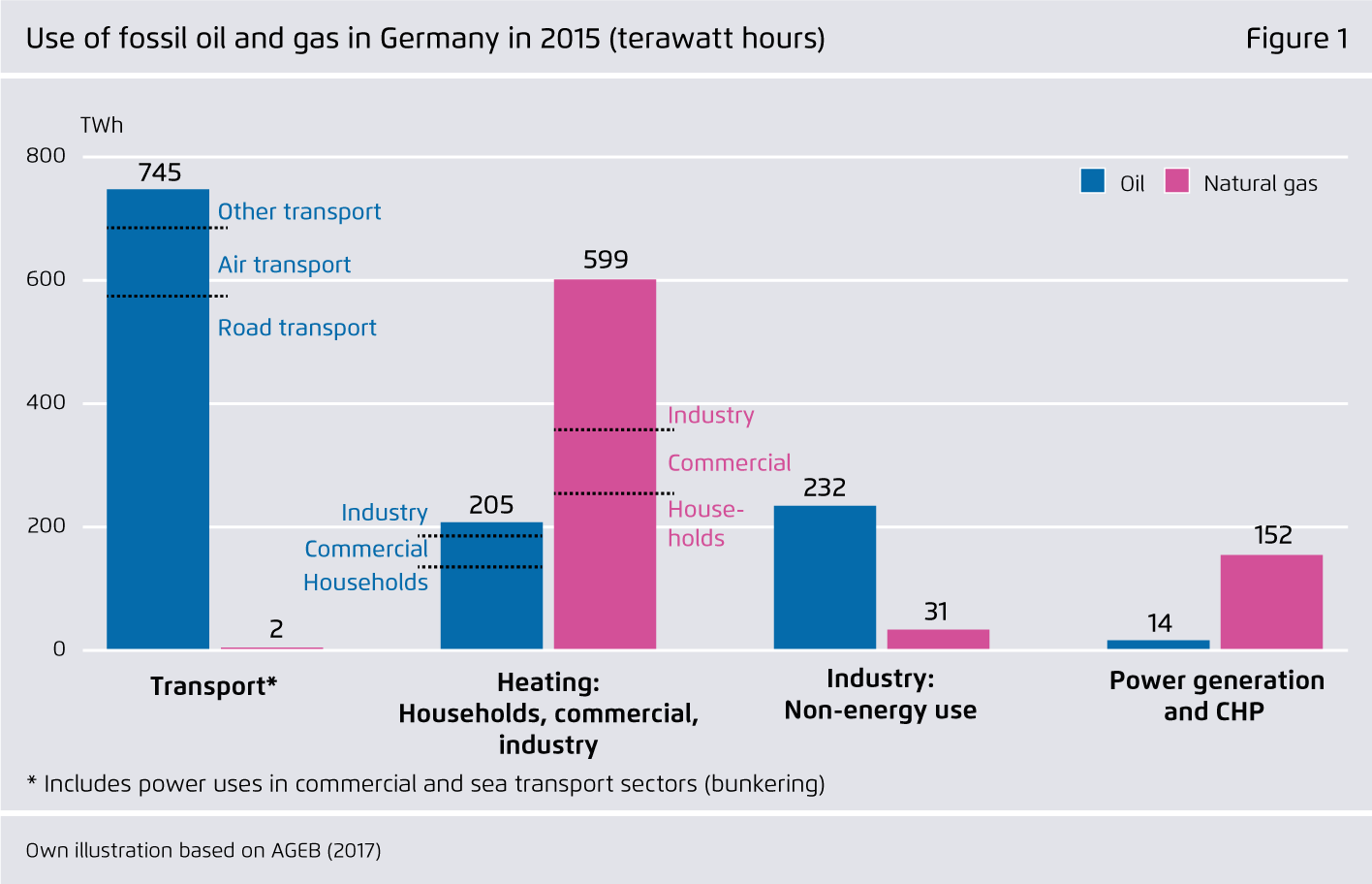
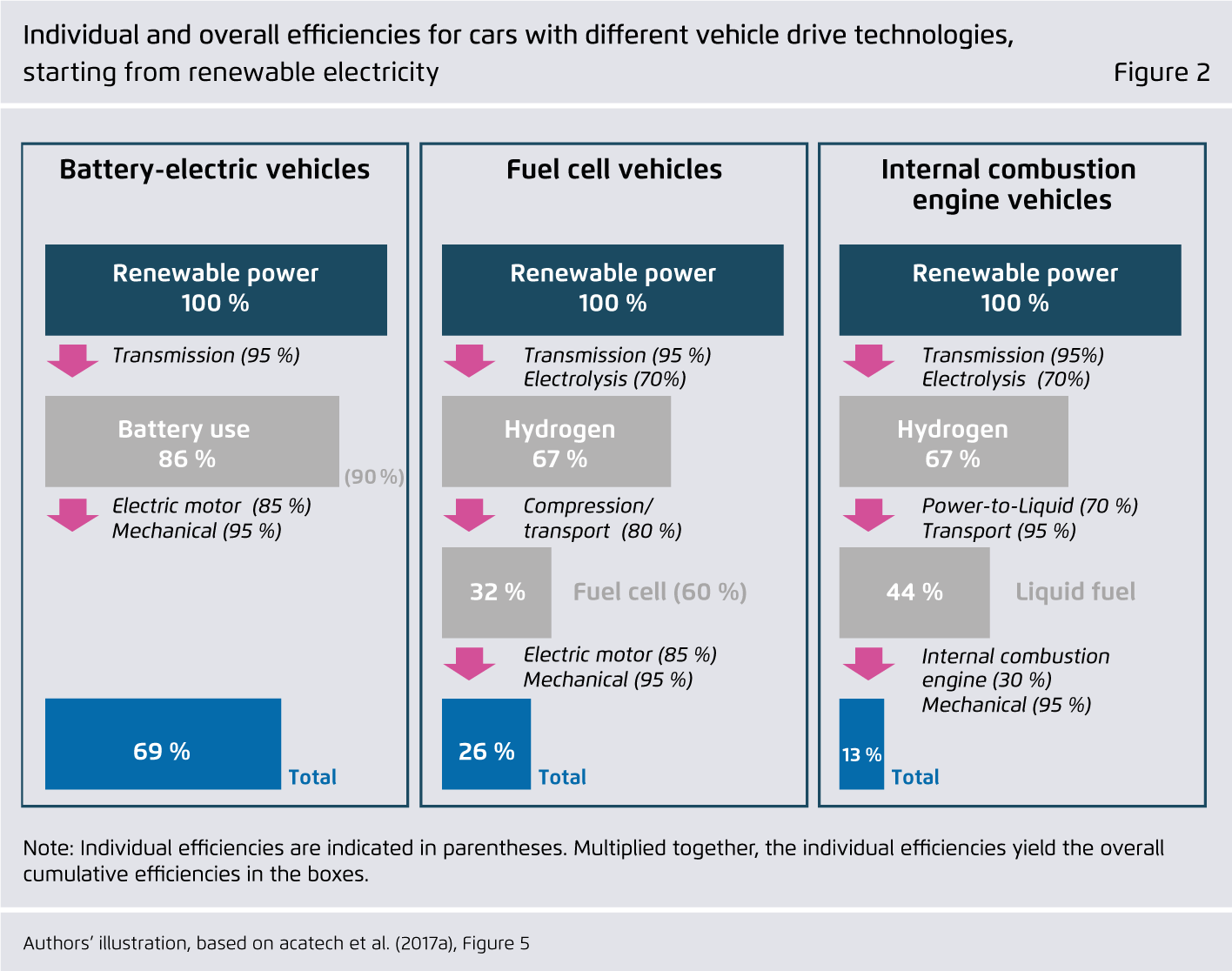
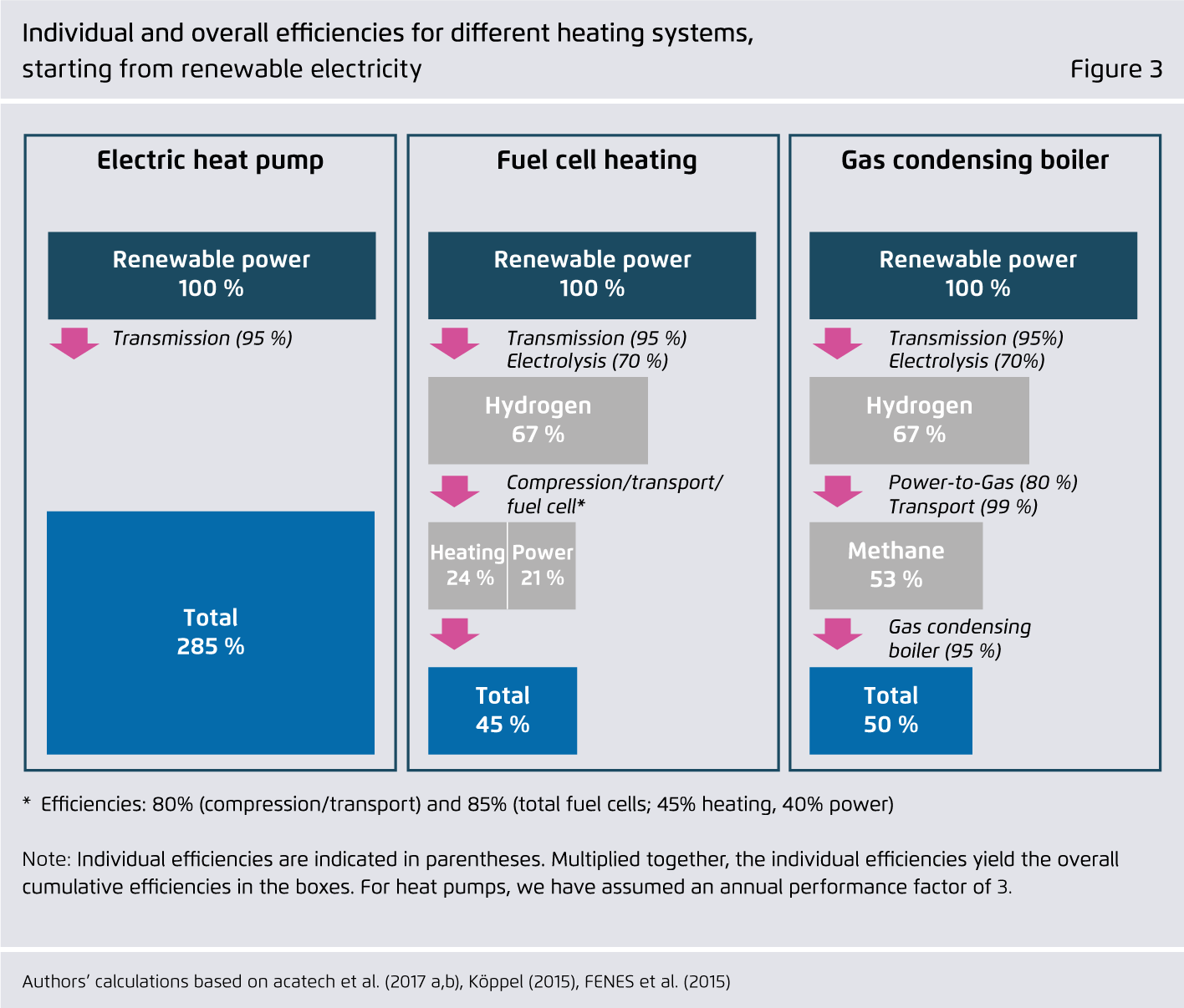
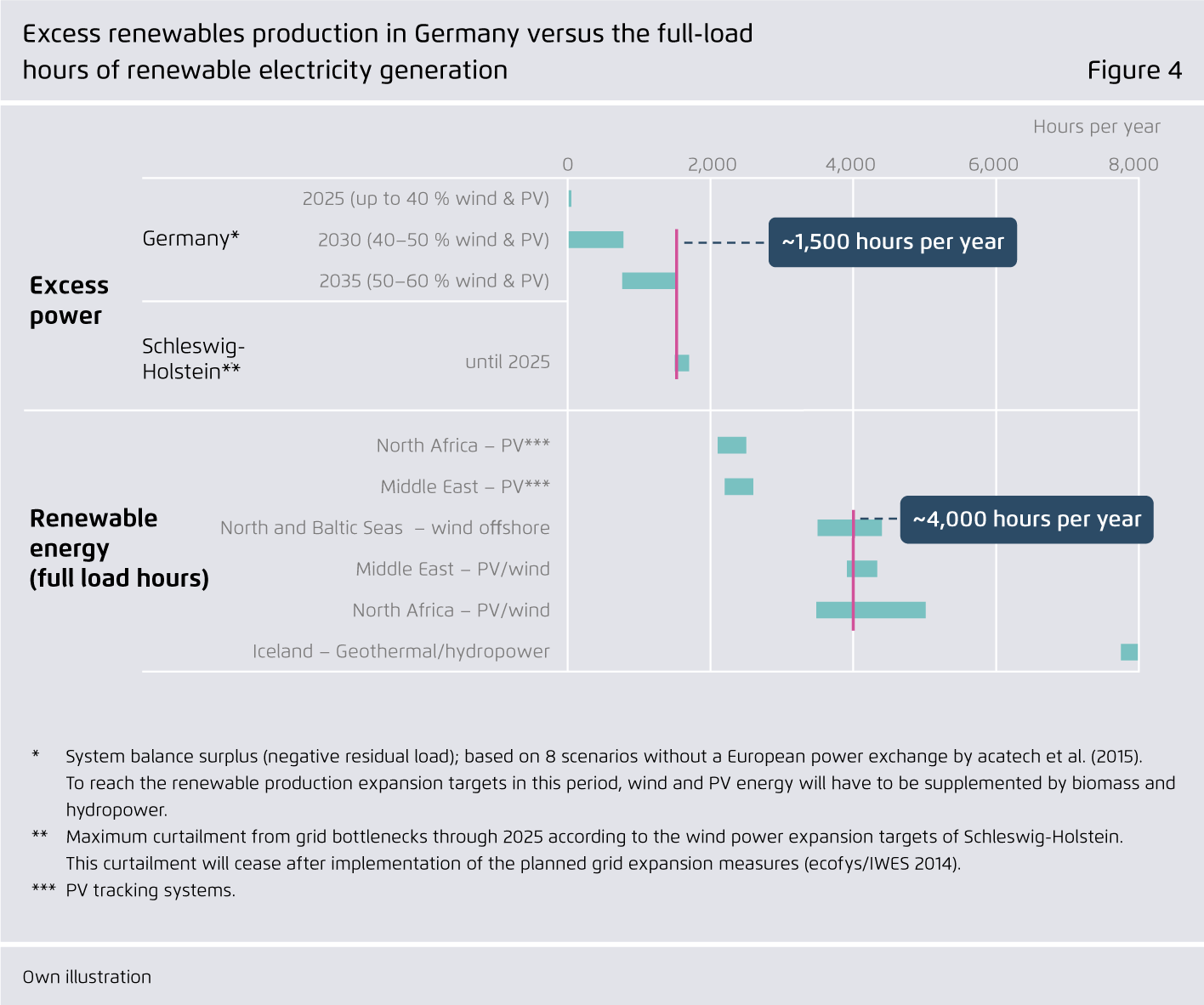
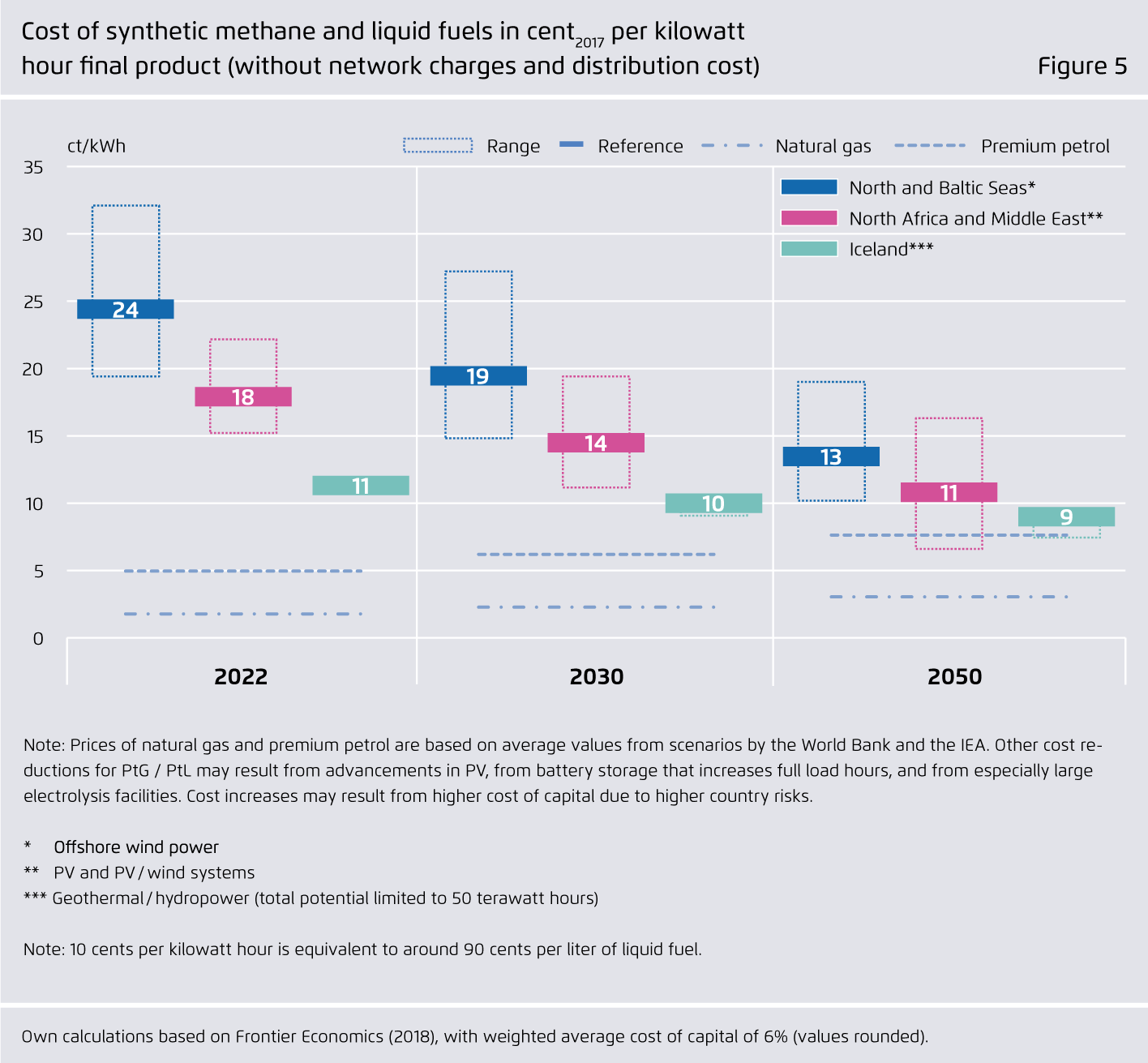
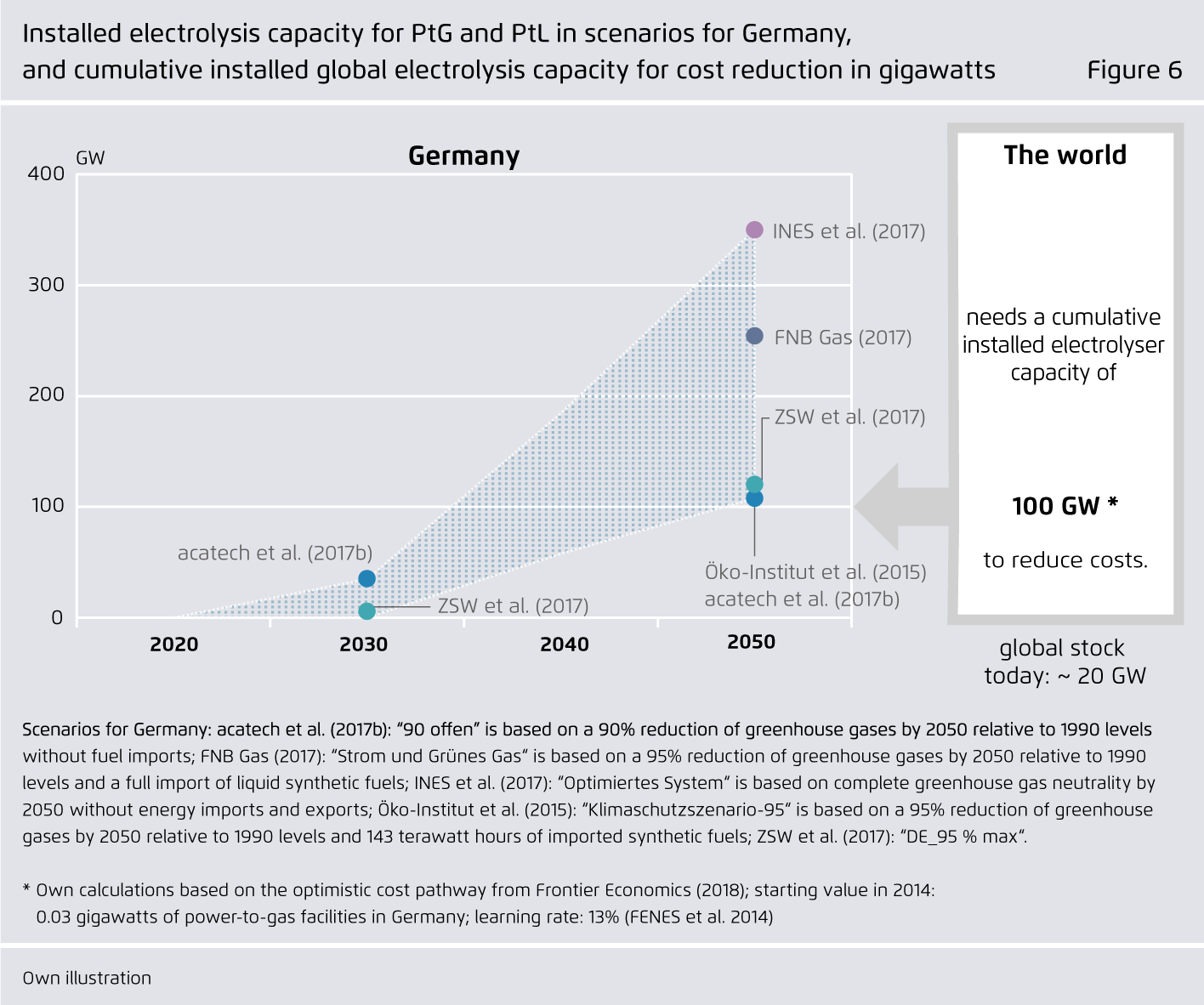
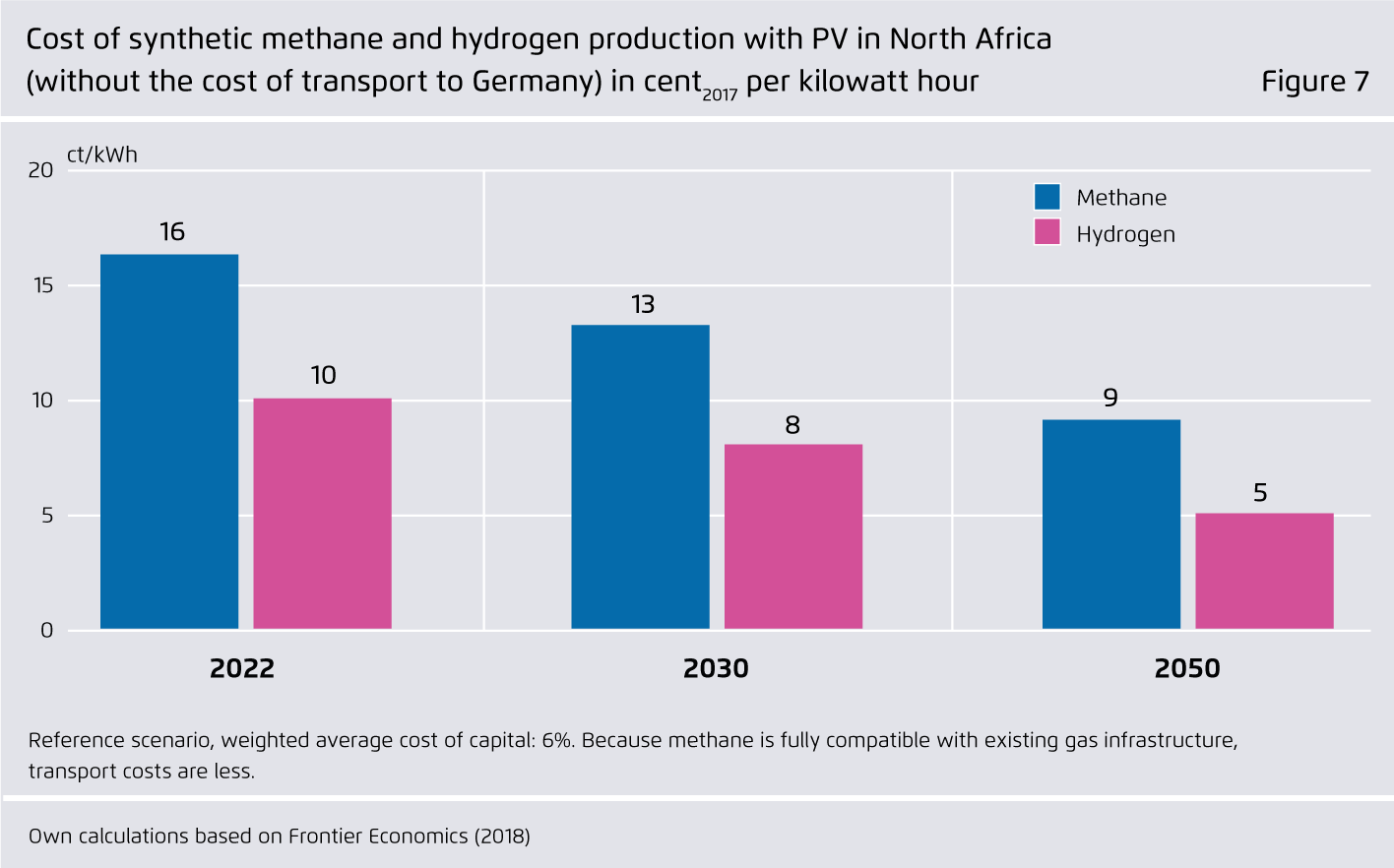
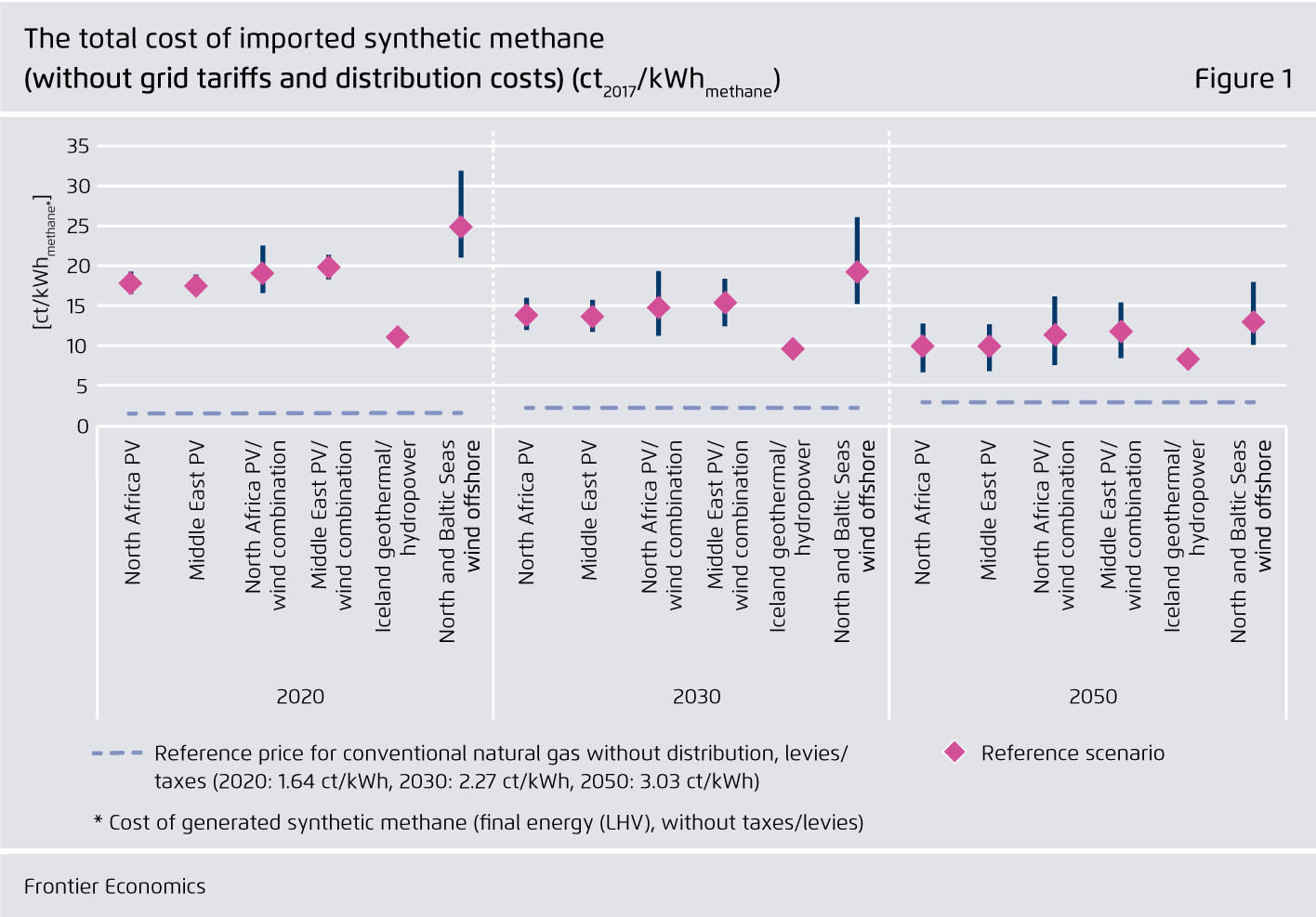
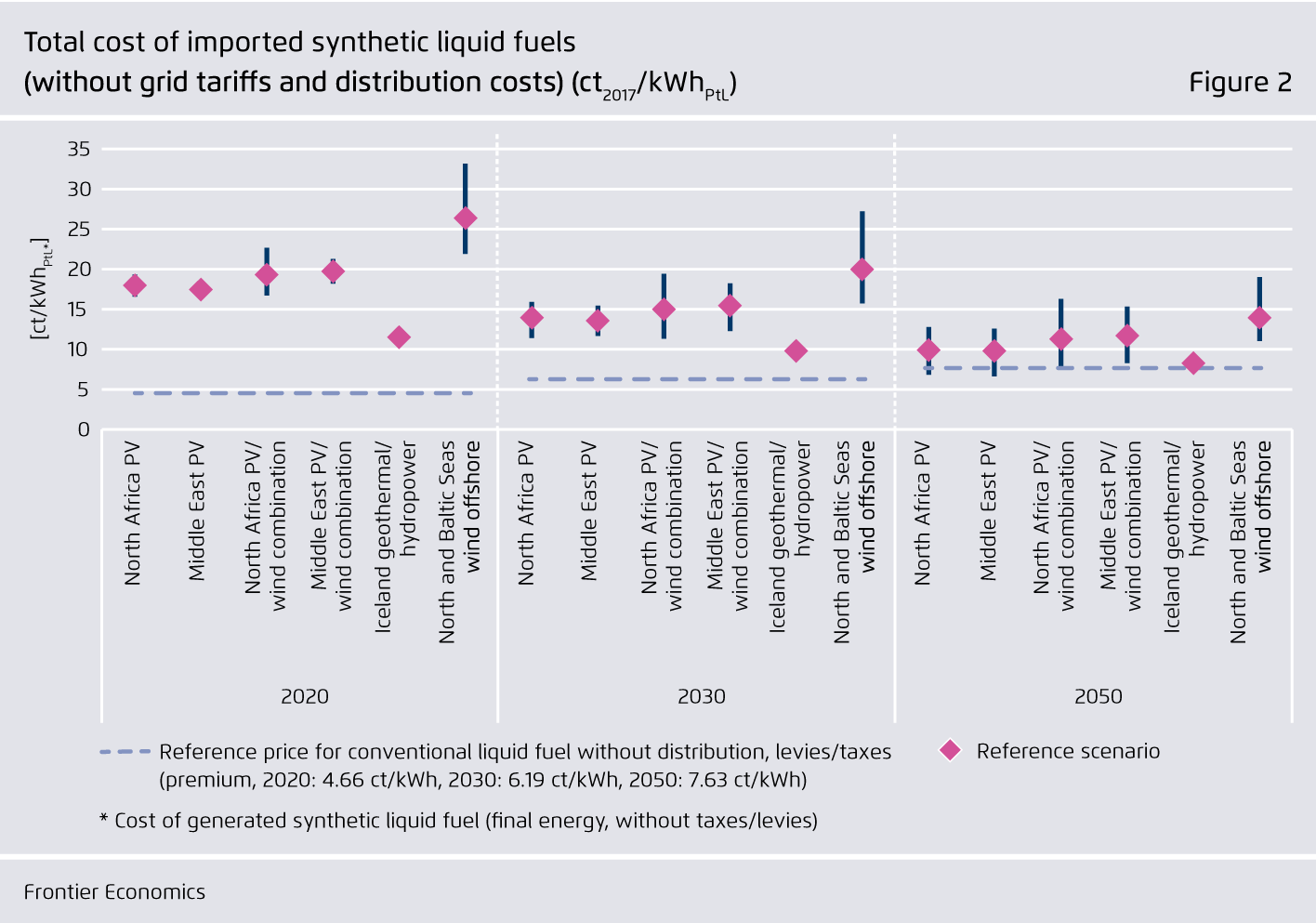
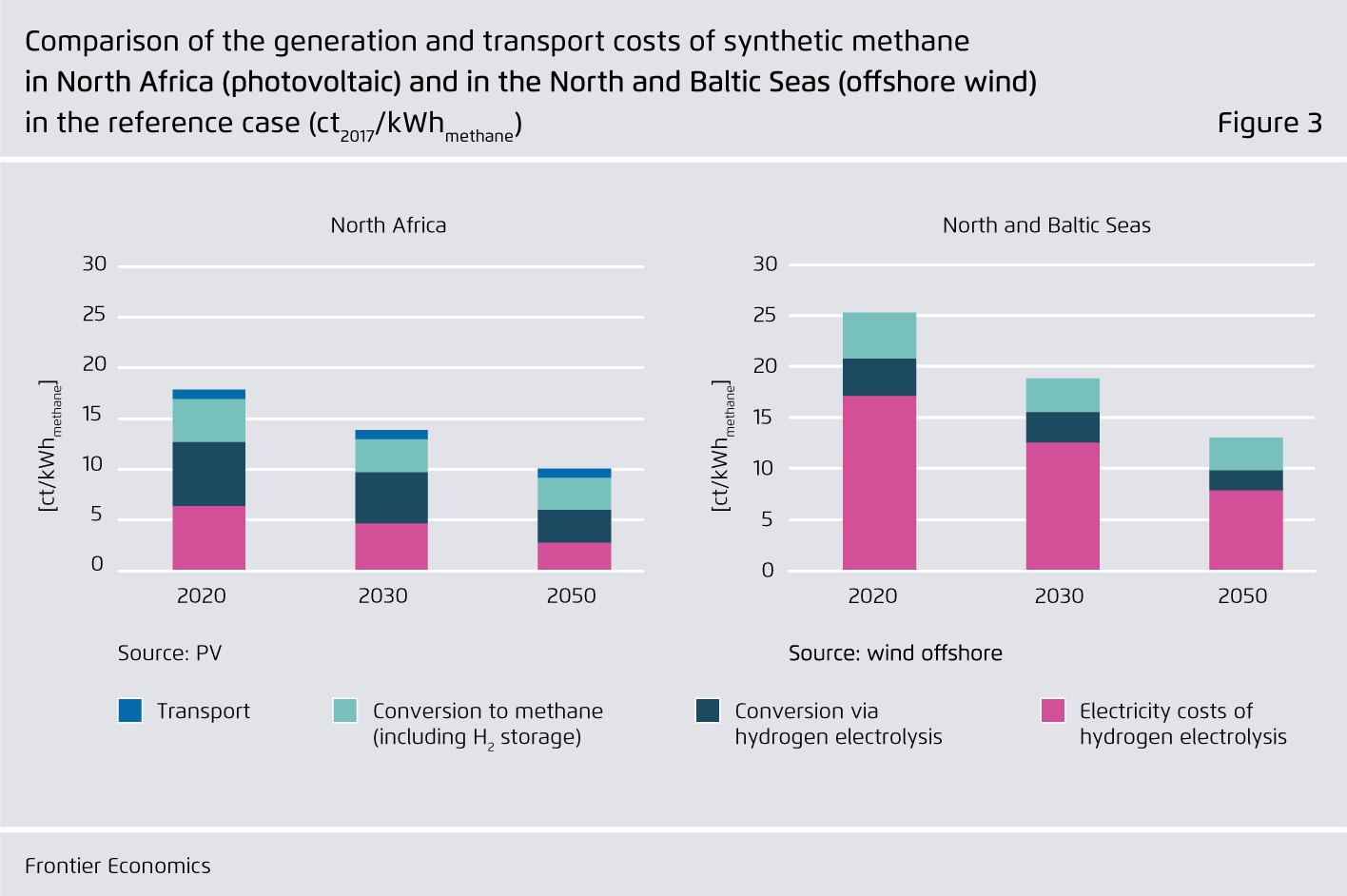
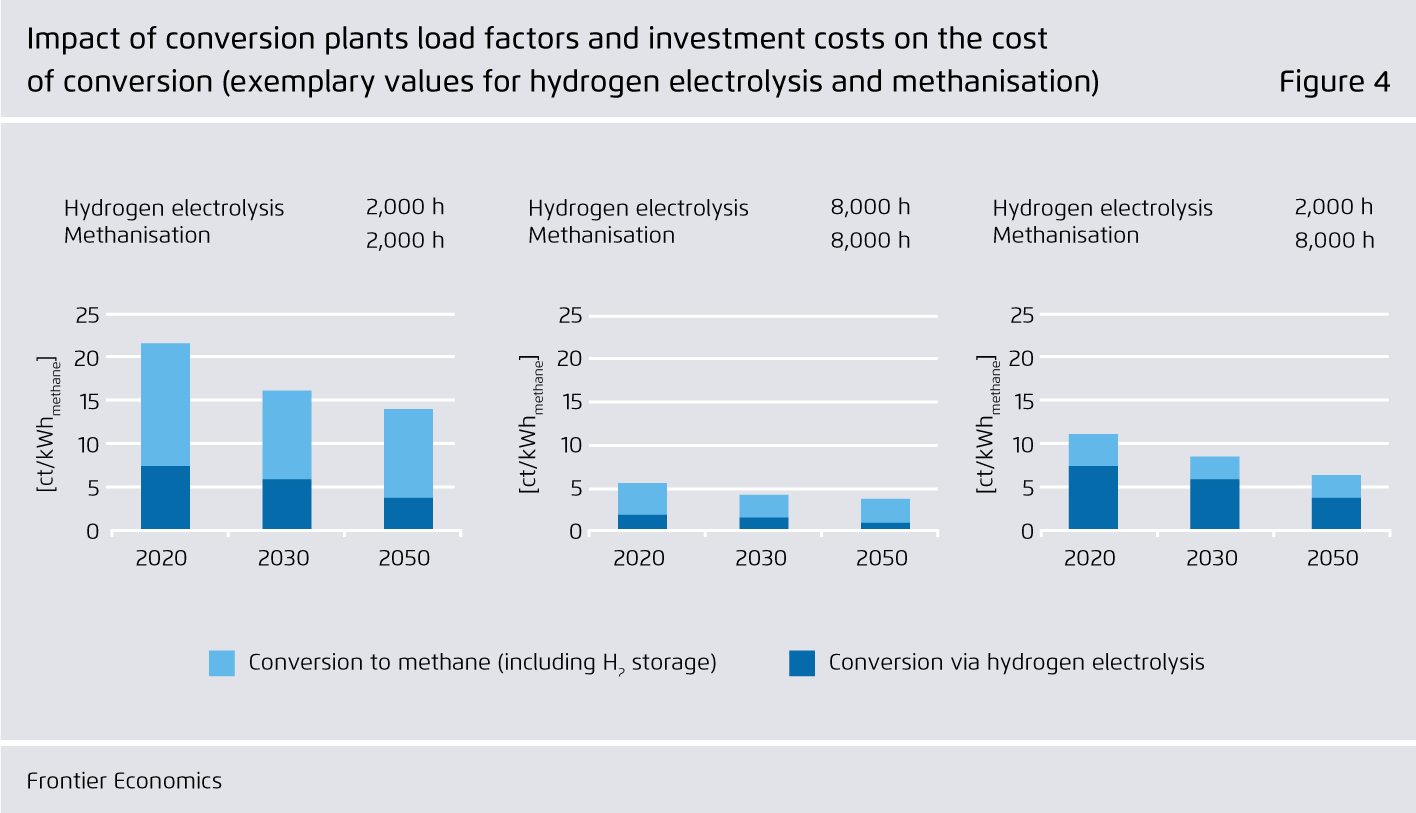
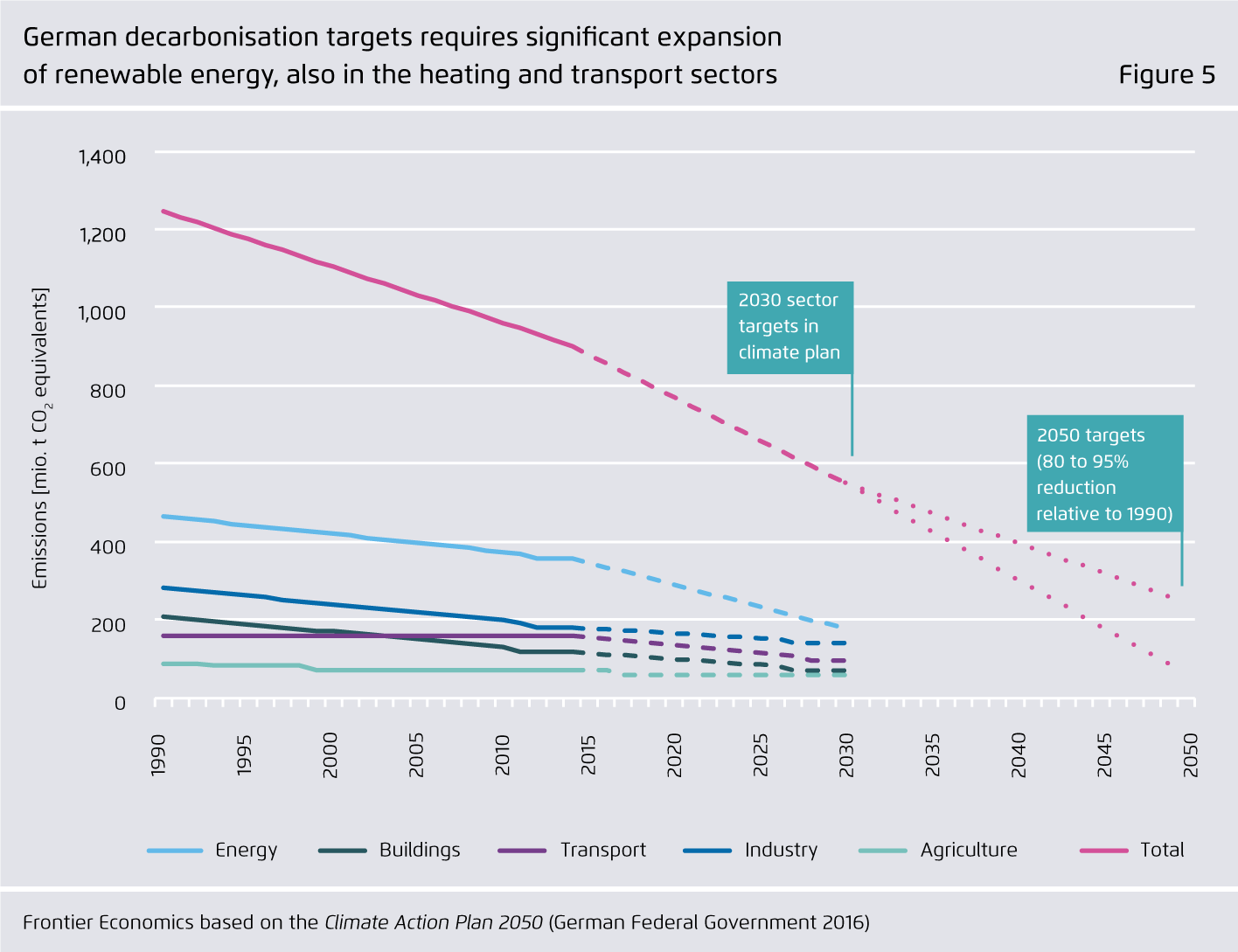
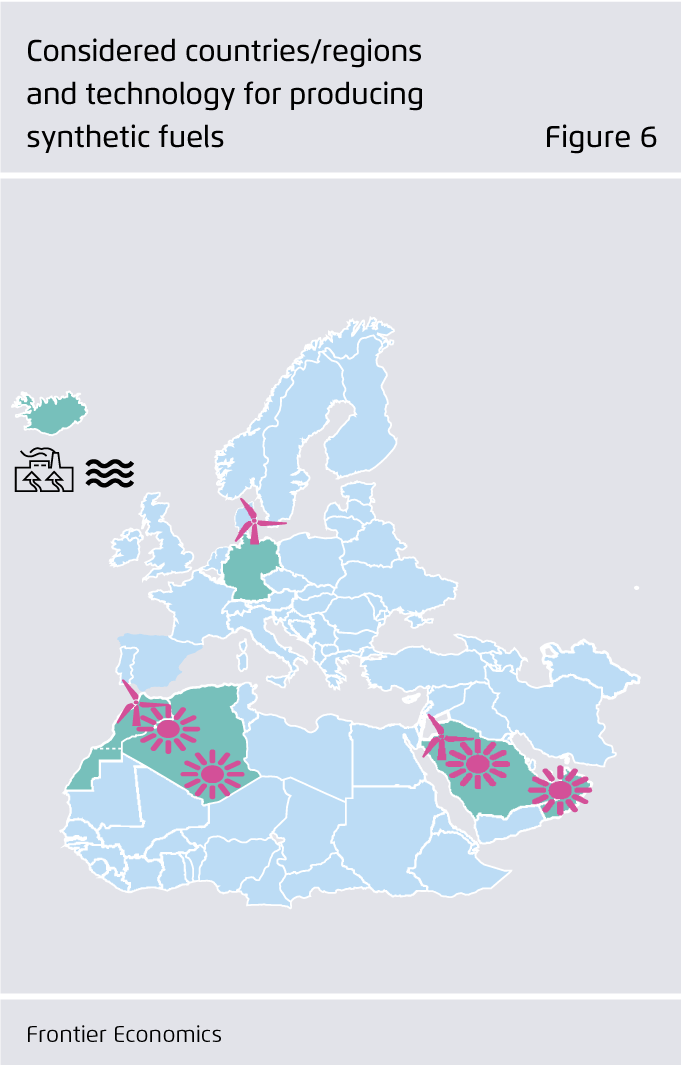
![Preview for Electricity generation costs in 2020, 2030 and 2050 [ct2017/kWhel]](/fileadmin/Abbildungen/1189/Abb_07.png)
